forensic accounting
description: accounting of engagements from disputes or litigation which have or are expected to happen
76 results
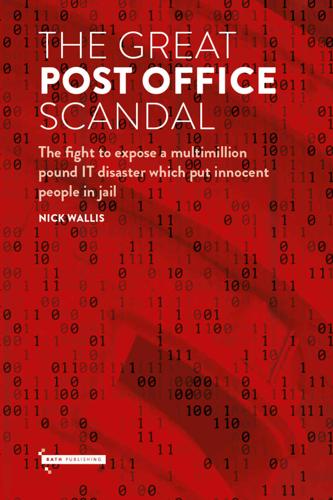
The Great Post Office Scandal: The Fight to Expose a Multimillion Pound Scandal Which Put Innocent People in Jail
by
Nick Wallis
Published 18 Nov 2021
An exasperated Kevan Jones almost yelled at her, ‘You’re the minister. Do something!’ Swinson replied that in response to the situation being described by MPs, ‘What I would normally propose doing is to get a team of forensic accountants to go through every scenario and to have the report looked at by someone independent, such as a former Court of Appeal judge… That is why Second Sight, the team of forensic accountants, has been employed and why we have someone of the calibre of Sir Anthony Hooper to oversee the process.’ The government was clearly telling MPs it was relying on Second Sight’s investigation and Sir Anthony Hooper’s chairmanship to get to the truth.
…
Perhaps a problem was now being covered up by false accounting. Once unusual activity had been identified, auditors could arrive at a Post Office, demand access to a counter and assess what was happening for themselves. Unfortunately, a lot of Post Office auditors weren’t very good at their jobs. Howe and Co, a firm of solicitors and forensic accountants, spelled it out in evidence submitted to a Parliamentary Select Committee inquiry in 2015. They told MPs: ‘Instead of performing a real audit, Post Office “auditors” simply assume that the balances on Horizon are correct, compare them with those in the branch and prosecute the Subpostmasters if the balances in the branch are less than those on Horizon.
…
The note continues to the conclusion there is ‘no evidence’ any problems have been found ‘of the nature suggested by JFSA.’3 Arbuthnot remembers Vennells and Perkins, ‘were clear that they believed their systems worked well, but they were equally clear that they wanted and needed to find a way through that would solve the problem to the satisfaction of everyone.’ Perkins and Vennells suggested the Post Office appoint a team of independent forensic accountants to have a proper look at their IT and business processes. Arbuthnot and Letwin thought this was a very good idea. Within three months, Second Sight were on the scene. ____________________ 1 The top in-house lawyer in any company. 2 Taken from a Faith in Business profile of Paula Vennells which reviews her speech to the 2017 Faith in Business Conference at Ridley Hall.
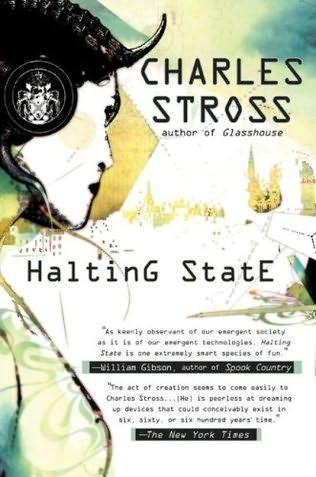
Halting State
by
Charles Stross
Published 9 Jul 2011
“Everyone else is focussing on HA’s business-level organization, they dumped the gaming stuff on me, and I’m not really an expert.” She gives a little self-deprecating laugh that raises the temperature back above zero. “So I asked for a native guide.” Ah. That explains it. Well, no it doesn’t, you realize, but it goes at least a third of the way towards it. “What do you do?” you ask her. “I’m a forensic accountant.” She pulls that prim, mousy, librarian face again as she taps a bunch of papers in her folio into line. “Oh. Well, ever done any gaming?” There’s always a chance. Some of the deadliest GMs you ever ran into back in your table-top days were accountancy clerks by day. “Not that kind. Why, do you think…?”
…
She’s the organ grinder, I’m just the performing monkey.” He mimes shaking a hat. VISITOR 2 elbows him in the ribs, sharply. “No, you’re a dancing bear. Do try to get the right species!” She faces you: “I’m sorry we seem to have gotten off on the wrong foot. I’m Elaine Barnaby, and yes, I’m from Dietrich-Brunner—I’m a forensic accountant. Jack here is a game-development consultant, and he’s acting as my guide. Now, what can we do for you, Sergeant?” “You can help yourselves to a coffee, then maybe tell me why Marcus Hackman might not want people such as yourselves, um, crawling around on his turf?” She raises an eyebrow. “Ah, that is an interesting turn of phrase.
…
“That Hayek Associates are trying to get the items back, but will be unable to return unclaimed items.” “But they’ll claim all sorts of shit that they never had!” “Really?” She gives Couper a withering look: “I’d never have guessed. Poor innocent me, nobody told me that people lie while I was studying for my master’s in forensic accountancy…” “But what use is it?” Couper looks upset, more than anything: “It doesn’t make sense!” “It’s simple enough. Most people will tell the truth, especially when we tell them we just want to know their five top items, so we can verify them against our database.” “But there isn’t a database—” Couper stops dead.
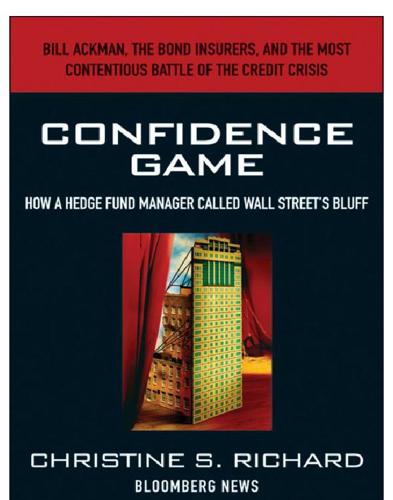
Confidence Game: How a Hedge Fund Manager Called Wall Street's Bluff
by
Christine S. Richard
Published 26 Apr 2010
His first choice was Lynn Turner, the former SEC chief accountant who had recently joined the forensic accounting firm Kroll, Zolfo, Cooper as a senior adviser. Turner, who couldn’t take on the assignment because it involved appearing before the SEC too soon after leaving the agency, recommended Roger Siefert, another accountant with the firm. Ackman decided Siefert was the right choice after he read a report Siefert worked on as part of a team of court-appointed examiners in the bankruptcy of Spiegel, a Chicago-based mail-order company. Ackman found it to be a brilliant piece of forensic accounting and research that described how a 100-year-old company collapsed under the weight of subprime lending.
…
“Dear Bill, I am writing to bring to your attention a company that is deserving of substantial SEC scrutiny that to date has appeared to escape the SEC’s normally careful review process,” Peretz wrote in a July 2004 letter to Donaldson. Peretz described Ackman’s two-year effort to publicize problems at MBIA, including the initial report, the hiring of forensic accounting experts, Ackman and Siefert’s 33-page letter to the SEC, and the five-hour presentation to a group of SEC officials in February 2004. “It is Mr. Ackman’s counsel’s view that the SEC has not pursued Mr. Ackman’s and [accounting firm] Kroll’s allegations seriously, and may have dropped the matter entirely,” Peretz wrote.
…
They wanted to meet with the two accountants again, this time without Ackman. “They might have thought we were suffering from Patty Hearst syndrome,” Siefert jokes, referring to the kidnapped newspaper heiress’s apparent loyalty to her captors and willingness to break the law for them. Essentially, the SEC wanted to know whether the forensic accountants would tell the same story without Ackman present. They did. ON NOVEMBER 18, 2004, MBIA announced that it had received subpoenas from the SEC and the New York attorney general’s office. Within a few days, MBIA clarified that regulators wanted to know more about the AHERF reinsurance deal.
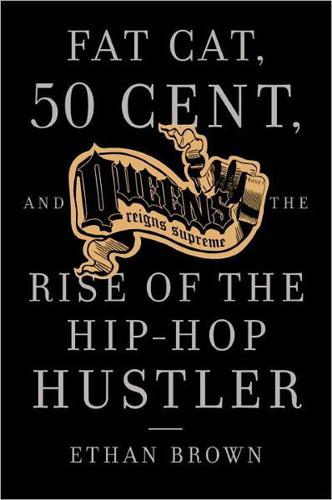
Queens Reigns Supreme: Fat Cat, 50 Cent, and the Rise of the Hip Hop Hustler
by
Ethan Brown
Published 22 Nov 2005
The government will figure that out.” But the feds weren’t looking at cocaine dealing—at least on Irv’s part—they were focusing on money laundering. Soon after the forensic accounting in late 2003 that found nothing inappropriate in The Inc.’s books, the feds allegedly found evidence that the Lorenzos were laundering ’Preme’s cash through two side companies they’d created, IG (“Irv Gotti”) Records, Inc., and MI (“Murder Inc.”) Records, Inc. “After the forensic accountant looked at Murder Inc., LLC, which is his partner company with Def Jam, we were confident that Irv was not engaged in money laundering,” says a source at the Universal Music Group, “but then we were told by the feds about the side companies.
…
Indeed, instead of making The Inc. seem less threatening, the move placed the company in the tradition of Death Row, which changed its name to Tha Row after its profile became too notorious. If the Lorenzos thought The Inc.’s cosmetic changes could turn the labels fortunes around or stave off a federal indictment, they were dreadfully naïve. The Lorenzos’ misguided optimism was enhanced after receiving a clean bill of health from a forensic accountant they’d hired to scrutinize their finances for improprieties. The accountant’s report supported many of the Lorenzos’ primary contentions—namely, that the Universal Music Group, not ’Preme, gave Murder Inc. its seed money—and, as a result, they became convinced that the feds would never indict them.
…
The pressure on the Lorenzo brothers: Lola Ogunnaike, “Record Label Drops Murder, Keeps Inc.,” The New York Times, December 4, 2003. 16j. The Lorenzos’ misguided optimism: Interview with Chris Lorenzo. 17. Supreme paid his debt: Nolan Strong, “Lyor Cohen Speaks on Gotti, Feds, JMJ,” allhiphop.com, March 22, 2003. 18. I can see: Interview with Irv “Gotti” Lorenzo. 19. After the forensic accountant: Interview with Universal Music Group executive, February 2005. 19a. With the evidence: United States of America v. Cynthia Brent, also known as “Cynthia Carr.” 19b. Against a backdrop: United States of America v. Kenneth McGriff, also known as “Supreme.” 19c. As a handcuffed Irv: Jeff Leeds, “Hip-Hop Producer Surrenders in Money Laundering Case,” The New York Times, January 27, 2005. 19d.
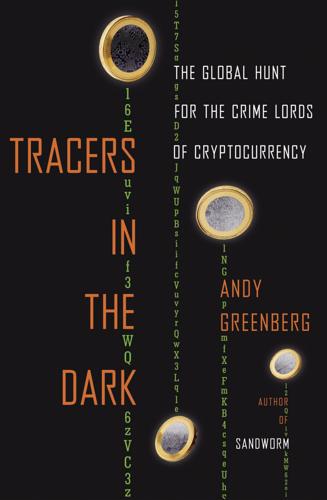
Tracers in the Dark: The Global Hunt for the Crime Lords of Cryptocurrency
by
Andy Greenberg
Published 15 Nov 2022
Transactions flowed from one address to another, with none of the names or other personal details that a bank or payment service like PayPal might collect. “Participants can be anonymous,” read one line in an email sent to a cryptography mailing list by the currency’s mysterious inventor, known as Satoshi Nakamoto. Bitcoin burrowed into the very center of Gambaryan’s mind, at the point where his obsessions with computers and forensic accounting converged. As an IRS investigator tasked with following the money, he considered the notion of anonymous digital cash vaguely foreboding. Who would pay taxes on these “anonymous” transactions? Wouldn’t Bitcoin become the perfect money-laundering tool? But a more basic and skeptical thought immediately struck Gambaryan about this new form of currency.
…
But a more basic and skeptical thought immediately struck Gambaryan about this new form of currency. “Participants can be anonymous,” he had read. But if this blockchain truly recorded every transaction in the entire Bitcoin economy, then it sounded like the precise opposite of anonymity: a trail of bread crumbs left behind by every single payment. A forensic accountant’s dream. Either way, no one seemed to be actually using Bitcoin for much at the time. So Gambaryan dismissed it as a kind of “silly internet money,” more technically interesting than practical, and forgot about it. The next time he would hear about Bitcoin, it would already be anointed as the coin of choice for the dark web’s budding black market.
…
* * * · · · Sitting in his office, Gambaryan stared at the Dread Pirate Roberts’s message, in which he stated unequivocally that he had paid Nob 525 bitcoins. It amounted to written evidence of a roughly $50,000 payment that had almost certainly landed in Force’s pockets. But Gambaryan was a forensic accountant. He knew that a conversation about a payment was very different from proof that it had actually occurred. Gambaryan needed receipts. And Bitcoin had become the chosen currency of crypto-anarchists and criminals precisely because there was no one to provide them. The prevailing wisdom in law enforcement agencies at the time still held that lawbreakers and libertarians were correct about Bitcoin—that it presented a serious problem for any agent who sought to trace dirty money movements.
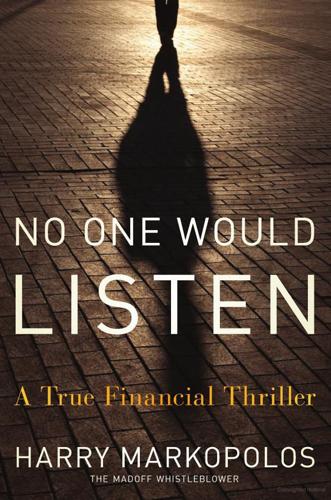
No One Would Listen: A True Financial Thriller
by
Harry Markopolos
Published 1 Mar 2010
I was so startled that the legendary Bernie Madoff was running a hedge fund that supposedly produced these crazy numbers that I didn’t trust my math. Maybe I’m wrong, I figured. Maybe I’m missing something. I asked Neil to check my numbers. If I’d made an obvious mistake, I was confident he would find it. Neil went through my math with the precision of a forensic accountant. If I’d made any mistakes, he decided, he couldn’t find them. By this time I had been working in the financial industry for 13 years and had built up a reasonably large network of people I knew and respected. In this situation I turned to a man named Dan DiBartolomeo, who had been my advanced quant teacher.
…
My family and I spent so much time there that it was almost like our second kitchen. It’s owned and run by the Drosos family, and they knew me well enough to consider me the local eccentric. I was the guy who had been coming in for years telling bad Greek jokes and sitting at a table reading forensic accounting books. I rushed into the restaurant disheveled, dripping wet, and admittedly very agitated. There was a television set hanging above the bar, and a photo of Bernie Madoff was on the screen. “Elaine,” I said, “Elaine, that’s my case. That’s what I’ve been working on. I’m the whistleblower. Do you have a fax machine?
…
I began to feel like we shared common objectives. I went through my red flags with them. They had a whiteboard in the room, and several times I got up and showed them the math. The inspector general brought in a camera and took pictures of each of my formulas, explaining that they intended to hire a forensic accounting firm to review my math for accuracy. That seemed like the best way to handle it. At one point late in the morning, Phil Michael took the unusual step of asking Kotz if he could step in and take over the questioning. He said, “I want to run by some points that we’re not hitting.” Phil had spent decades involved in criminal investigations and he knew the entire story, so he made sure we got out the pertinent information.
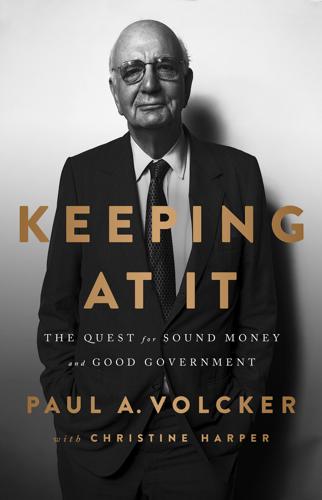
Keeping at It: The Quest for Sound Money and Good Government
by
Paul Volcker
and
Christine Harper
Published 30 Oct 2018
In each I’ve seen a degree of erosion in the trust that should be at the heart of the auditing profession, its very raison d’être. I respect many of the leaders in the field, both in the private sector and certainly in the US Government Accountability Office (the GAO). I came to value the forensic accountants who played an important role investigating the claims on Swiss banks by Holocaust victims and corruption in the UN’s Oil-for-Food program. In both, the internationally respected forensic accountant Frank Hydoski and his colleagues demonstrated what experience and technical skills can produce in terms of hard evidence. Unfortunately, in other areas of accounting there have been too many grounds for skepticism and concern, too many incentives to cut corners, too many conflicts of interest.
…
Credit Where Credit Is Due an earlier graduate: Dewey was, in fact, the first PhD in public administration from the Littauer school. See Federal Reserve, https://www.federal reservehistory.org/people/j_dewey_daane. INDEX Accenture, 198 accounting democracy/accountability and, 202 forensic accountants, 193 GAO and, 193, 229, 230 generally accepted accounting principles (GAAP), 194, 196 trust and, 193 accounting standards, international Securities and Exchange Commission (SEC) and, 193–194, 196, 197 Aichi, Kiichi, 80 Al-Waleed, Sheikh, 155 American Council on Germany, 42 American International Group Inc.
…
See savings and loans (S&Ls) Tilghman, Shirley, 160–161 Tobin, James, 23 too-big-to-fail issue Continental Illinois and, 128 Great Recession (2008) and, 128, 213–214 Trade Expansion Act (1962), 73 Traveler’s Company, 204, 205 Treasury “Accord, the” and, ix, 31, 38 Federal Reserve accounts and, 35, 35n Federal Reserve independence and, ix, 31, 37, 38 Latin American debt crisis and, 131, 132–133, 134, 135 See also Quadriad; specific individuals; specific monetary policies Treasury (Nixon administration) fixed rate exchange/end and, 61–79 team/Democrats on team, 60, 61 Treasury/Volcker Federal Financing Bank/securities, 88–89 interest equalization tax/IRS and, 50 interventions leading to more interventions and, 50 move/home and, 46 offer, x, 26 position/work, x, xi, 46, 50, 51, 52–53, 54–55 Treasury/Volcker (return) auctions/debt securities, 88 beginnings, 60 Camp David meetings (1971), 71–74 fixed exchange rates and, 61–62, 63–67, 68, 69–74 international monetary policies, 59–60, 61–62, 63–67, 68, 69–79 leaving, 90 Nixon and, 61 reforms/debt securities, 88–89 responsibilities, 60 work, 58, 59 “Triffin dilemma,” 48, 54, 64, 65, 87 Triffin, Robert, 48–49 Trilateral Commission creation/beginnings, 171 David Rockefeller and, 57, 58n founding, 57 Japan and, 171, 172 Volcker and, 57, 58n, 171–172 Troubled Asset Relief Program (TARP), 209, 233 Truman, Harry, 20, 25, 238 Truman, Ted, 132, 243 Trump, Donald, 215, 234–235 trust in government, xvi, 2–3, 4, 221, 235–236, 245 Tweedie, David, Sir, 194, 196, 200 Tyco International, 200 United Nations Iraqi Oil-for-Food program, United Nations Security Council and, 182 United Nations Iraqi Oil-for-Food program investigation Australian Wheat Board and, 185 Britain’s Serious Fraud Office (SFO) and, 184 countries cooperating/not cooperating, 184–185 findings/recommendations, 186–187 forensic accountants and, 193 Independent Inquiry (Volcker) Committee, 183–188 India/Singh and, 185 Kofi Annan and, 181, 183, 186, 187 Kojo Annan and, 186 secrecy laws and, 184 team members, 182–188 team reunion (2018), 187–188 United Nations Security Council and, 183 US Congress and, 185–186 Volcker and, xv, 182–188 US Financial Accounting Standards Board (FASB), 194, 196 US Government Accountability Office (GAO), 193 Vagelos, Roy, 198 Van Gerven, Walter, 190 Vasisht, Gaurav, 246 Vassar College, 6 Venezuela, 136 Vereker, John, Sir, 189–190 Vietnam War, 54, 55, 240 Volcker, Adolf, 9 Volcker Alliance, 245–246 creation, xvi, 2, 239, 242, 245 Fed supervision and, 234 governance of United States and, 235–236, 239 government trust and, 233–234, 245 mission, xvi, 2, 4, 245 public service education and, 159 Volcker, Alma, 6, 11, 12–13, 18, 240 Volcker, Barbara, ix, xv, 30, 43, 91, 116, 123, 143 health issues, 91, 103, 116, 152, 156, 162, 163, 164 son’s education and, 91, 163 Volcker, Barbara/Paul car and, 52n financial squeeze and, 116, 152 friends in Washington, DC, 91 grandchildren, 162, 163 living arrangements/Fed chairman, 103, 104 moves/homes, ix, x, 30, 40, 46, 56n, 93, 95, 156 reappointment to Federal Reserve/deal and, 116–117 Volcker family/childhood finances and, 12 fishing/New Jersey lake, 11 heights, 5–6, 10, 10n parental educational responsibilities, 13 See also specific individuals “Volcker Group,” 64, 67, 83, 87 Volcker, Janice, ix, 40, 76, 91, 104, 162, 163, 164 Volcker, Jimmy, ix, 40, 91, 103, 114–115 Volcker, Louise, 6, 9–10, 26–27 Volcker, Paul, Jr., 40, 68 fishing and, 11, 94, 111n, 117, 126, 132, 164–165, 225, 243 golf and, 164 government pension and, 26, 95 offers after leaving Treasury (1974), 93–94 offers following Fed, 152–153 political parties and, 30, 210 procrastination and, 15, 18, 22, 40, 153 smoking and, 163–164, 165 Volcker, Paul, Jr.
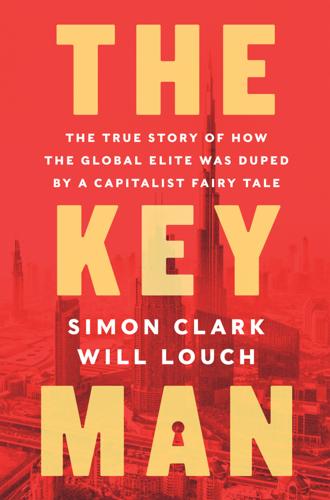
The Key Man: The True Story of How the Global Elite Was Duped by a Capitalist Fairy Tale
by
Simon Clark
and
Will Louch
Published 14 Jul 2021
Arif ordered staff to send a new bank statement to Andrew and the other investors to prove everything was fine. But the statement for December 7 made the investors even more concerned. Andrew had asked for statements for an entire year, not for one December day. Andrew and the other investors appointed Ankura, a U.S. forensic accounting firm, to find out what was really going on. Sev tried to reassure Andrew. He explained that the healthcare fund was being operated like a company, rather than a fund, and that under such circumstances it was normal for cash balances to be kept for long periods. Arif’s only option now was to return all the missing money to the healthcare fund investors and hope they stopped asking questions.
…
He called him repeatedly and tried to win him over with flattery. He said that he had closely followed Andrew’s career for a decade and told him he wasn’t surprised when the Gates Foundation promoted him to lead its impact-investing program. He wanted Andrew to call off the investigation by the forensic accountants at Ankura and urged him to appoint KPMG or another of the big accounting firms to do the audit instead. The handful of Abraaj employees who knew about the precarious situation were extremely nervous. “It’s fraud. Simple,” an executive told Mustafa in December 2017. “Even beyond that,” Mustafa replied.
…
We still needed more proof because the source refused to reveal their identity. After another week of telephone calls, people confirmed that investors were investigating Abraaj for mismanaging their money but no one was prepared to speak publicly about this. Healthcare fund investors including the Gates Foundation had appointed Ankura, a forensic accounting firm, to investigate what had happened to their money, we were told. Now we had enough information to write an article. When the Davos meeting ended, Arif flew to London. He told his top team to drop whatever they were doing and join him in Abraaj’s Mayfair office in a final effort to kill our news story.
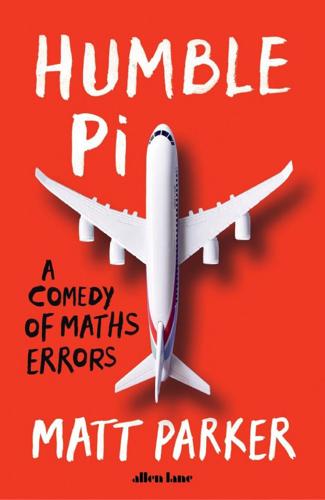
Humble Pi: A Comedy of Maths Errors
by
Matt Parker
Published 7 Mar 2019
As always, humans are terrible at being random. And it turns out restaurants are not very good at cooking books. Lead digits on the left; final two digits on the right. Benford’s Law also applies when looking at the first two digits of numbers, and this is one of the things forensic accountants look for. It’s hard to get real-world examples of this being used to spot tax fraud, and all the forensic accountants I’ve ever met have refused to be named or speak on the record. But there is some old data we can look at. Mark Nigrini is an associate professor at the West Virginia University College of Business and Economics and he analysed a dataset of 157,518 taxpayer records from 1978 which the Internal Revenue Service had anonymized and released.
…
Not that adults are very different. As the saying goes, there are only three things certain in life: death, taxes and people trying to cheat on their taxes. Fudging a tax return can require making up some random numbers to look like real financial transactions. And instead of a teacher checking homework, there are ‘forensic accountants’ going through tax returns to look for the tell-tale signs of fake data. If financial fraud is not done randomly enough, it is easy to spot. There is a standard financial data check which involves looking at the first few digits of all available transactions and seeing if any are more or less frequent than expected.
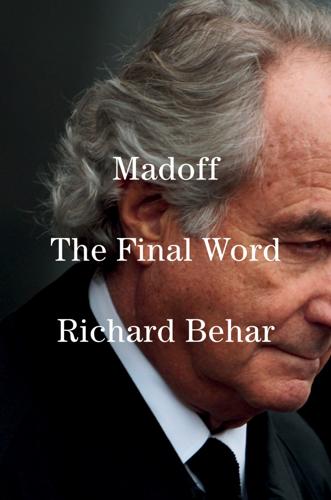
Madoff: The Final Word
by
Richard Behar
Published 9 Jul 2024
Oddly, November 7 saw a debit in the exact same amount. These transactions were juxtaposed in the data with lengthy conversations between the parties. What was going on? “This is the end of the line [for the company’s fate], and it’s juxtaposed with a long conversation,” says one investigator. “Any forensic accountant will tell you that an account that zeros out is weird anyway.” We’ll never know what it was about, as a $1 billion case brought by trustee Irving Picard against the Mets owners was settled, with Katz-Wilpon forking over more than $100 million for losing investors. Both men have long insisted they were victims and had no clue that it could all be a fraud.
…
But in the end, it was an illusion of safety, since the double-digit returns they were getting—in up and down markets—were simply too good to be true. In the wake of the fraud, Adele sent me a pile of the customer statements that she, like other investors, had received on a monthly or quarterly basis, as well as a BLMIS customer agreement that she’d signed in 1993. After examining those documents for this book, an investigative forensic accountant named Bruce Dubinsky, who has probed Madoff’s operation for the court-appointed trustee, concluded that had any of these investors done minimal due diligence, or handed them off to an expert, the fraud could have been uncovered. Case in point: on one stock trading “confirmation” ticket, the company listed is spelled wrong, which took place on many statements for customers.
…
According to Dubinsky, who also once worked as an investment advisor, it was strange to have customers authorize only Bernie and not the firm itself. “If somebody had sent me that, I would have said, ‘Why is he the only guy? What happens if he had a heart attack—no one can trade my money?’ It makes no sense. No one would ever do that.” Not long after Bernie’s arrest, Madoff prosecutors, FBI agents, and forensic accountants found themselves in a conference room trying to make sense of the BLMIS account statements. “They didn’t look like normal brokerage statements,” recalls prosecutor Baroni. “We couldn’t initially understand them. I had to get a tutorial from agents on how to decode them.” And yet for Adele and virtually every other Madoff investor, this didn’t raise any flags.
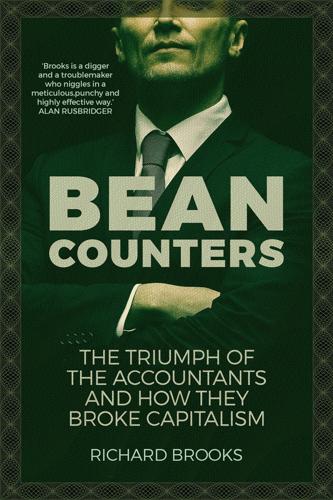
Bean Counters: The Triumph of the Accountants and How They Broke Capitalism
by
Richard Brooks
Published 23 Apr 2018
Two of its other three executive directors, covering ‘corporate governance and reporting’ and ‘audit’, are accountants from KPMG and PwC, while Big Four veterans chair other committees supporting their work.55 More important perhaps is the regulator’s lack of firepower. In 2016/17, the FRC’s total budget was £33m, and it spent just £4m on ‘enforcement’.56 Even after a recent recruitment drive, its enforcement division contains just 30 staff (mostly lawyers and forensic accountants).57 Towards the end of 2017, it had only 24 cases under investigation, covering almost a decade of widespread accounting malpractice. It routinely turned down high-value apparent accounting failures for investigation as not meeting the FRC’s ‘public interest’ threshold. Yet when I talked to Stephen Haddrill in 2017, he told me that he did not consider his organization’s enforcement effort to be under-resourced.
…
It did, though, match the FRC’s response to the 2008 financial crisis, which had amounted to investigating just one major banking failure – and then only after Parliament had forced it to.58 Even when the regulator achieves some success, it doesn’t capitalize on it. In 2017, the FRC fined PwC £5.1m for misconduct in the audit of RSM Tenon, a dubious accountancy company that had gone bust four years earlier. Yet rather than retaining the funds to seriously bolster its investigatory efforts – perhaps by recruiting more forensic accountants – the regulator handed the millions to the bean counters’ own professional body, the Institute of Chartered Accountants in England and Wales (ICAEW), ‘in recognition of their funding of FRC cases’.59 The ICAEW then set about spending the money on training, which they should have been doing anyway.
…
In 2011, when chair of lobbying group CityUK, he wrote to the government protesting against EU plans to prevent auditors from performing consultancy work. Stephen Haddrill is formerly of the Department of Trade and Industry. The FRC directors from KPMG and PwC are Paul George and Melanie McLaren. 56. FRC annual report 2016/17. 57. Information supplied by FRC to author, October 2017. The 30 staff were: 13 lawyers, 11 forensic accountants, 5 support staff, 1 PA. The FRC’s budget in 2017, for all its work going beyond investigations into standard-setting and similar duties covering the actuarial profession, was £36m. The Big Four’s total fees were around £10bn. 58. Details of board members and figures available from FRC website, https://www.frc.org.uk/Home.aspx. 59.
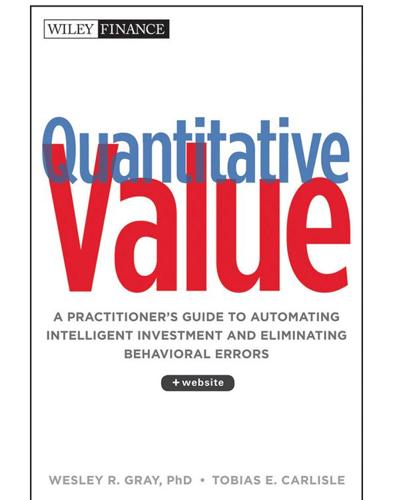
Quantitative Value: A Practitioner's Guide to Automating Intelligent Investment and Eliminating Behavioral Errors
by
Wesley R. Gray
and
Tobias E. Carlisle
Published 29 Nov 2012
For a more holistic view on manipulation, we need to dig deeper into the academic literature. Dr. Messod Beneish, an accounting professor at Indiana University's Kelley School of Business, outlined a quantitative approach to detecting financial statement manipulation in his 1999 paper “The Detection of Earnings Manipulation.”11 He based his model on forensic accounting principles, calling it the “probability of manipulation,” or “PROBM” model. Despite the sophisticated statistical procedures used by Beneish, his research is easy to understand. First, he collated a sample of known earnings manipulators. Then he identified their distinguishing characteristics and used those characteristics to create a model for detecting manipulation.
…
International Review of Financial Analysis 20 (2011): 269–282. Available at http://ssrn.com/abstract=937361. 11. M. D. Beneish, “The Detection of Earnings Manipulation.” Financial Analysts Journal (September/October 1999): 24–36. 12. Messod Daniel Beneish, Craig Nichols, and Charles M. C. Lee, “To Catch a Thief: Can Forensic Accounting Help Predict Stock Returns? (July 27, 2011).” Available at http://ssrn.com/abstract=1903593 or http://dx.doi.org/10.2139/ssrn.1903593. 13. The NORMDIST function in Excel can be used to perform the transformation of a PROBM score into a more interpretable PMAN, or probability of manipulation score. 14.
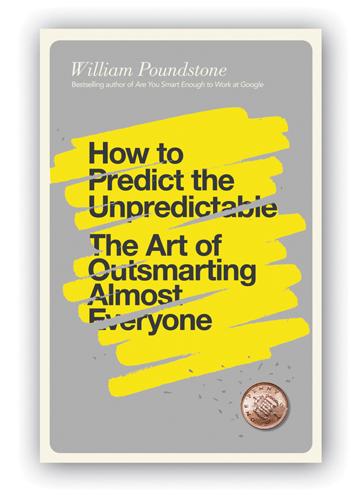
How to Predict the Unpredictable
by
William Poundstone
“Contrarian Strategies for NCAA Tournament Pools: A Cure for March Madness?” Chance 21, 39–46. Nigrini, Mark J. (1993). “Can Benford’s Law Be Used in Forensic Accounting?” Balance Sheet, Jun. 1993, 7–8. ——— (1996). “A Taxpayer Compliance Application of Benford’s Law.” Journal of the American Taxation Association 18, 72–91. ——— (2005). “An Assessment of the Change in the Incidence of Earnings Management Around the Enron-Andersen Episode.” Review of Accounting and Finance 4, 92–110. ——— (2012). Benford’s Law: Applications for Forensic Accounting, Auditing, and Fraud Detection. New York: Wiley. Nocera, Joseph (2005). “$100 Billion in the Hands of a Computer.”
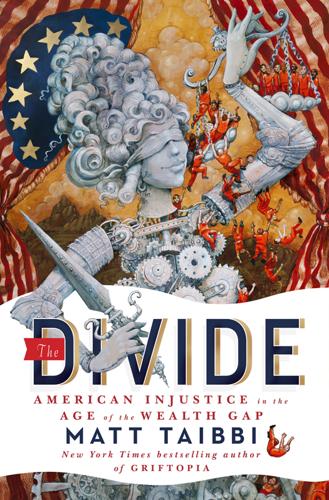
The Divide: American Injustice in the Age of the Wealth Gap
by
Matt Taibbi
Published 8 Apr 2014
Instead, for much of the mid-2000s Rekuc played the part of high-powered international forensic accountant, and it was he, in conjunction with Contogouris, who helped craft the specifics of Contogouris’s central theory, that Fairfax was the next Enron. In fact, Contogouris in the summer of 2005 managed to get an audience with the FBI and dragged Rekuc along with him, presenting him as an expert forensic accountant who had done a detailed analysis of Fairfax and discovered a sizable fraud. Years later Rekuc in a deposition would cheerfully admit that he wasn’t a forensic accountant, hadn’t done a forensic examination of Fairfax, and in fact had discovered no evidence of fraud at Fairfax or at Crum & Forster when he met with the FBI.
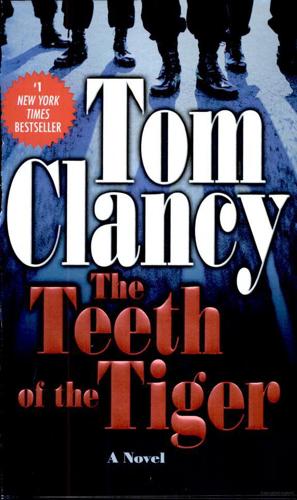
The Teeth of the Tiger
by
Tom Clancy
Published 2 Jan 1998
First, he tried to see if his program could shortcut the process. Nope. Fourth-grade arithmetic with a nose attached. What fun. At least by the time he finished, he'd probably be better at entering numbers into the numeric keypad on the right side of the keyboard. There was something to look forward to! Why didn't The Campus employ some forensic accountants? They turned off Route 2 onto a dirt road that wound its way north. The road had seen a good deal of use, some of it recent, judging by the tracks. The general area was somewhat mountainous. The real peaks of the Rocky Mountain chain were off to the west, far enough away that he couldn't see them, but the air was thinner here than he was accustomed to, and it would be warm walking.
…
The Brits have a loose tail on him because he called somebody they found interesting once." "And?" "And Junior has found a couple of hundred thousand pounds that can't be accounted for." "How solid is that?" Bell asked. "We'll have to put a regular on it, but, you know this kid's got the right sort of nose." "Dave Cunningham, maybe?" A forensic accountant, he'd joined The Campus out of the Department of Justice, Organized Crime Division. Pushing sixty, Dave had a legendary nose for numbers. The trading department at The Campus mainly used him for "conventional" duties. He could have done very well on Wall Street, but he'd just loved bagging bad guys for a living.
…
"I haven't checked yet, but if there is, then he was ordered to do it by his friend, and then they met so that he could confirm it over a pint of John Smith's Bitter." "You're making a leap of imagination. We try to avoid that here," Wills cautioned. "I know," Junior growled. It was time to check out the previous day's money-moving. "Oh, you're to be meeting somebody new today." "Who's that?" "Dave Cunningham. Forensic accountant, used to work for Justice-organized-crime stuff. He's pretty good at spotting financial irregularities." "Does he think I found something interesting?" Jack asked with hope in his voice. "We'll see when he gets here-after lunch. He's probably looking over your stuff right now." "Okay," Jack responded.
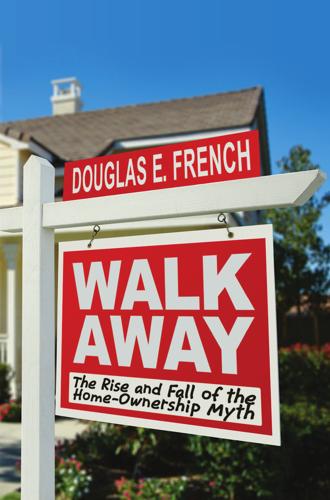
Walk Away
by
Douglas E. French
Published 1 Mar 2011
NOW, THE ONLY WAY you can determine who the father (holder in due course) is to take blood samples (accounting, servicing, custody, investor reports and data) from EACH MAN (servicer/transferee, etc.) to see whose DNA it was and all the others to determine the dad and who owes child support. Unless you do the DNA (forensic accounting analysis of all docs and records), it doesn’t matter what the bank lawyers or servicers say really transpired here! Without seeing where that NOTE (not mortgage) came on and off anyone’s books; how it was endorsed and when; who has possession and custody and who negotiated the note and PAID for it, you’ll never be able to answer the age old question, “WHO’S YOUR DADDY?”
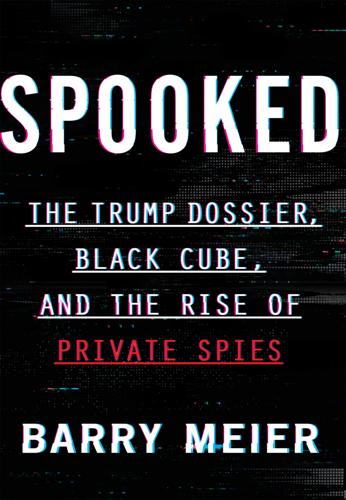
Spooked: The Trump Dossier, Black Cube, and the Rise of Private Spies
by
Barry Meier
Published 17 May 2021
Many of those companies offer similar services, such as investigative support for lawyers defending companies or individuals from criminal or regulatory actions and performing background, or due diligence, reviews. Various firms have tried to distinguish themselves from competitors by emphasizing specialized expertise into computer security, forensic accounting, or knowledge about Russia, Africa, or other parts of the world. In deciding about how to focus my reporting for this book, Fusion GPS and Orbis Business Intelligence were two natural choices because of the outsized roles that Glenn Simpson, Peter Fritsch, and Christopher Steele played in recent political events.
…
One former employee of K2 Intelligence said that when he asked Jules Kroll how he should provide clients with an estimate of a case’s cost, Kroll offered this simple formula: “He said, you should figure out what you want and then triple it,” that ex-employee said. To rebrand the investigations business, Jules Kroll reached out beyond the usual cadre of ex-spooks and retired agents and cops who staffed most firms and hired lawyers, forensic accountants, former journalists, and recent college graduates who were bright, curious, and presentable. The approach reflected his own unplanned career path. He had first worked as a prosecutor in the Manhattan District Attorney’s Office and dreamed about a career in politics. That hope died after he was soundly defeated in his first attempt to win elective office and he never ran again.
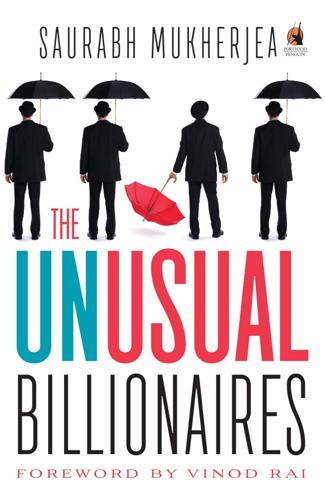
The Unusual Billionaires
by
Saurabh Mukherjea
Published 16 Aug 2016
To put this simply: companies which have high-quality accounts also tend to be companies which have high-quality management. These stocks tend to do significantly better than those with inferior management, whose accounts often tend to be dodgy. My colleagues’ analysis proves this thesis.33 Deciles constructed on the basis of accounting scores (which are in turn based on Ambit’s forensic accounting model—summarized in Exhibit 134) show a tight link with share price performance. Stocks in the top decile (i.e. the top 10 per cent of BSE500 stocks on accounting quality) outperformed stocks in the bottom decile (i.e. the bottom 10 per cent) by a whopping 39 per cent CAGR over the six-year period (FY10–15) covered in this study.
…
While each sector would have its own set of metrics to assess accounting quality, I present a generic framework below that my colleagues at Ambit use to assess accounting quality for corporate India (see Exhibits 135). While a full description of this framework is beyond the scope of this book, I will describe the first of these ratios (which is also my favourite forensic accounting ratio) to help you understand how the overall framework helps assess the quality of accounts. Cash flow from operations/EBITDA: This ratio is a check on a company’s ability to convert EBITDA, i.e. operating profits (which can be relatively easily manipulated) into operating cash flows (which is tougher to manipulate).
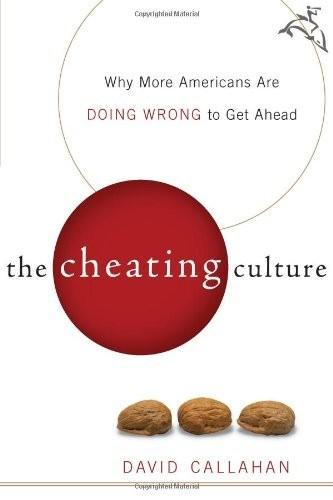
The Cheating Culture: Why More Americans Are Doing Wrong to Get Ahead
by
David Callahan
Published 1 Jan 2004
The Association of Certified Fraud Examiners (ACFE) is located in Austin, Texas. The group's 28,000 members are spread throughout the country and many are skilled in the arcane specialty of forensic accounting. The subfield has grown rapidly in recent years. Conferences are held to exchange tips on how to unravel complex financial frauds and, in 1999, a group of academics founded the Journal of Forensic Accounting. Their timing couldn't have been better. Fraud examiners are constantly struggling to keep up with sophisticated scams for embezzlement, padding expenses, hiding money overseas, and so on.
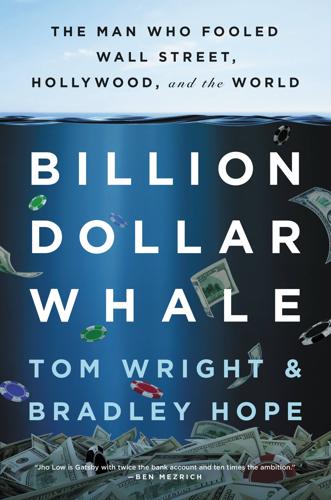
Billion Dollar Whale: The Man Who Fooled Wall Street, Hollywood, and the World
by
Tom Wright
and
Bradley Hope
Published 17 Sep 2018
Cast of Characters The Low Family Low Taek Jho, “Jho Low” Low Taek Szen, “Szen Low,” his older brother Low May-Lin, his older sister Goh Gaik Ewe, his mother Low Hock Peng, “Larry Low,” his father Jesselynn Chuan Teik Ying, Jho Low’s girlfriend Low’s Associates Jasmine Loo Ai Swan, legal counsel at 1Malaysia Development, or 1MDB, a Malaysian state investment fund Casey Tang Keng Chee, 1MDB’s executive director Seet Li Lin, Wharton friend and vice president of Jynwel Capital, Low’s Hong Kong firm Eric Tan, “Fat Eric,” party boy and Low associate Nik Faisal Ariff Kamil, 1MDB’s investment director Hamad Al Wazzan, Kuwaiti friend Malaysia Najib Razak, Malaysia’s prime minister Rosmah Mansor, Najib’s wife Riza Aziz, Rosmah’s son by an earlier marriage; cofounder of Red Granite Pictures Mahathir Mohamad, former prime minister and Najib nemesis Anwar Ibrahim, opposition leader Goldman Sachs Timothy Leissner, chairman, Southeast Asia Andrea Vella, head of Goldman’s structured finance business in Asia; later cohead of investment banking, Asia Lloyd Blankfein, chief executive Gary Cohn, president PetroSaudi International Prince Turki Bin Abdullah Al Saud, cofounder Tarek Obaid, cofounder and chief executive officer Nawaf Obaid, Tarek’s brother Patrick Mahony, chief investment officer Xavier Justo, head of London office Abu Dhabi Khadem Al Qubaisi, managing director, IPIC Yousef Al Otaiba, UAE ambassador to the United States Mohamed Badawy Al Husseiny, chief executive, Aabar Investments Sheikh Mohammed Bin Zayed Al Nahyan, crown prince of Abu Dhabi Sheikh Mansour Bin Zayed Al Nahyan, brother of Sheikh Mohammed and chairman of IPIC Khaldoon Khalifa Al Mubarak, chief executive of Mubadala Development BSI Hanspeter Brunner, chief executive, Asia Yak Yew Chee, chief relationship banker for Jho Low and 1MDB Yeo Jiawei, a wealth management banker who leaves to work for Jho Low Kevin Swampillai, head of wealth management AmBank Cheah Tek Kuang, chief executive Joanna Yu, banker handling Prime Minister Najib Razak’s accounts Falcon Bank Eduardo Leemann, chief executive Hollywood/Entertainment Joey McFarland, friend of Low’s; cofounder of Red Granite Pictures Paris Hilton, socialite Leonardo DiCaprio, actor Jamie Foxx, actor, musician Kasseem Dean, “Swizz Beatz,” husband of Alicia Keys, music producer Busta Rhymes, musician Noah Tepperberg and Jason Strauss, owners of the Strategic Hospitality Group nightclub empire Miranda Kerr, model Prakazrel Samuel Michél, “Pras,” musician Kate Upton, model Martin Scorsese, director Elva Hsiao, Taiwanese musician and sometime Low girlfriend Nicole Scherzinger, musician Journalists Clare Rewcastle-Brown, founder of Sarawak Report Tong Kooi Ong, owner of the Edge Ho Kay Tat, publisher of the Edge Federal Bureau of Investigation William “Bill” McMurry, head of international corruption squad, New York Robert Heuchling, lead FBI agent on the 1MDB case Justin McNair, FBI agent and forensic accountant on the case Prologue Las Vegas, November 3–4, 2012 Around 6 p.m. on a warm, cloudless November night, Pras Michél, a former member of the nineties hip-hop trio the Fugees, approached one of the Chairman Suites on the fifth floor of the Palazzo hotel. Pras knocked and the door opened, revealing a rotund man, dressed in a black tuxedo, who flashed a warm smile.
…
Slender with blue eyes and an athletic build, Heuchling studied journalism at Northwestern University before joining the U.S. Marines, and he had worked at the FBI for five years. McMurry made him lead on the case, by far the most weighty of his short career. Justin McNair, an agent who had forensic accounting experience, was another senior member of the group. Alongside a team of federal prosecutors, and with access to data from the U.S. financial system, as well as cooperation with law enforcement agencies in Switzerland and Singapore, the agents were making progress. But there was a problem. Money-laundering cases are by nature multijurisdictional, making them time-consuming to investigate.
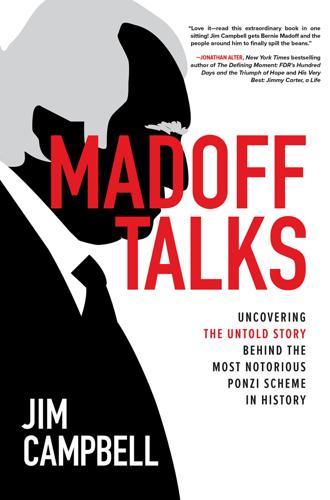
Madoff Talks: Uncovering the Untold Story Behind the Most Notorious Ponzi Scheme in History
by
Jim Campbell
Published 26 Apr 2021
It was now sitting unceremoniously mothballed in a locked closet at Duff & Phelps, the FBI having relinquished control after the investigation. Figure 6.1 The antiquated IBM AS/400 that Bernie used to run the $65 billion Ponzi scheme “Fraud Permeated BLMIS”3 Dubinsky was low key, as you might expect of a forensic accountant. He was also a data-driven straight arrow, dedicated to the search for truth. Dubinsky would go wherever the evidence took him; it was an intense trip. Duff & Phelps’s work came to be referred to as simply “The Dubinsky Report.” Its conclusions showed that Bernie Madoff was consistently involved in fraudulent investment activities beginning as far back as the early 1970s.
…
Incentivize action by making the bounty hunting investigative team eligible for a portion of the whistleblowing yield. Continue to enhance SEC staff capabilities. The SEC has moved to bring in staff with specialized expertise in hedge funds, derivatives, clearing, risk management, trading, portfolio strategies, forensic accounting, verification of trades and custody arrangements, and use of databases maintained by exchanges and clearinghouses. This means bringing in significant securities experience (which would take higher compensation ranges) with out-of-the-box thinking capabilities, not legal mindsets just checking off the boxes on audits, looking to pad their statistics of the volume of examinations completed (which we know doesn’t always translate into resolved examinations).
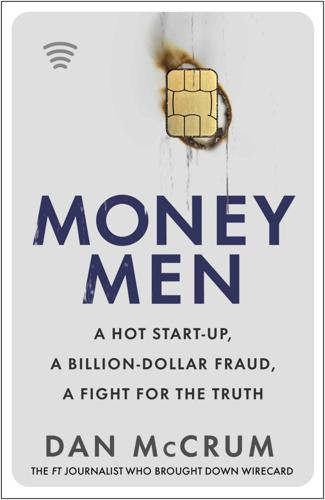
Money Men: A Hot Startup, a Billion Dollar Fraud, a Fight for the Truth
by
Dan McCrum
Published 15 Jun 2022
The first question was about the special audit, and Braun giggled at his own metaphor for the cycle of accounting allegations and company denials. ‘There was this film with Bill Murray called Groundhog Day. So the KPMG approach is bringing this really to an end.’ The special audit, meanwhile, was off to a slow start. A group of forty forensic accountants from KPMG had begun their work, publicly promised access to all areas, whatever documents they needed. Regular meetings began in the Wirecard legal department which occupied the ground floor of building 28 on the Aschheim campus. There were normally three or four representatives each from Ernst & Young and KPMG.
…
He appeared to be linked to at least two different intelligence agencies and connected to some of the nastiest people in the world. Maybe Wirecard really was protected, after all. 32 Police Escort 22 January 2020 – Aschheim Wirecard share price €129, market capitalization €16bn KPMG WANTED TO KNOW where the cash was. When its team of forensic accounting specialists first arrived at Wirecard they were told that more than €1bn of Wirecard cash was in Singapore, in bank accounts overseen by a trustee. The man holding this great responsibility was Shan, the oval-faced paperwork expert and bar owner used for years by Henry O’Sullivan. However, his company, Citadelle Corporate Services, was not co-operating.
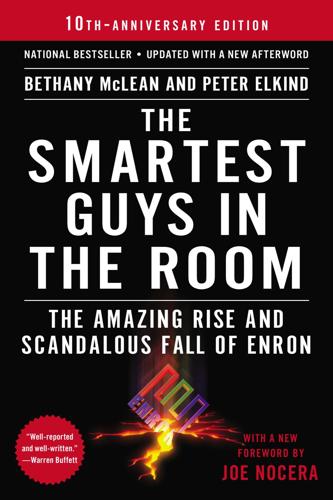
The Smartest Guys in the Room
by
Bethany McLean
Published 25 Nov 2013
After leaving the government, McLucas went into private practice with the Washington law firm of Wilmer, Cutler & Pickering. Now he was the go-to man for companies embroiled in accounting scandals. McLucas had the process down to a drill: serving as the company’s independent counsel, he’d conduct a detailed internal investigation, backed by a special team of forensic accountants, experts in dissecting complex transactions. The process would be overseen by a special board committee, which would issue a public report, aimed at reestablishing the company’s credibility by airing out all the dirty laundry. Lay had resisted hiring McLucas and his high-powered team, insisting to Enron subordinates, “They’ll just find something wrong.”
…
The SEC was about to announce that it was elevating its informal inquiry to a formal investigation; Enron’s credibility on the propriety of its dealings with Fastow’s partnerships—which Lay had so doggedly defended—had evaporated. A newly appointed director, University of Texas Law School dean William Powers, would chair the special investigative committee for the board. Deloitte & Touche would do the forensic accounting. At another board meeting two days later, there was an even more sobering legal presence: Martin J. Bienenstock, corporate America’s grim reaper. Bienenstock, with the New York firm of Weil Gotshal & Manges, was the nation’s preeminent bankruptcy lawyer. No one at Enron was ready to throw in the towel, but his appearance was a signal that the situation was becoming dire.
…
And EES reported trouble closing new contracts. Enron’s earthward spiral was accelerating. Desperate for a way to shift the momentum, Enron executives pressed the special investigative committee of the board—the one that had started work just three weeks earlier, with the help of special counsel Bill McLucas and his forensic accountants—to complete its work and issue its report. “These guys actually thought that the big-picture problems were not going to yield anything fundamentally wrong,” recalls one of the investigators in amazement. “Everyone wanted us to come out and say to the masses outside of the operating room, ‘We’ve opened the patient up, and everything’s fine.’ ” On Monday, November 19, McMahon and Whalley led a two-hour presentation to more than 200 bankers from 75 lenders at the Waldorf-Astoria Hotel in New York.
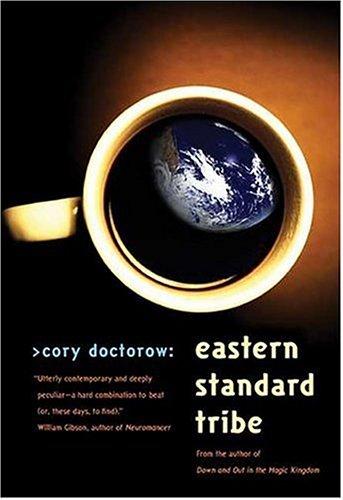
Eastern standard tribe
by
Cory Doctorow
Published 17 Feb 2004
Who's he working for? ## Colonelonic (private): Himself. He Federally incorporated last week, something called "TunePay, Inc." He's the Chairman, but he's only a minority shareholder. The rest of the common shares are held by a dummy corporation in London. Couldn't get any details on that without using a forensic accounting package, and that'd get me fired right quick. Trepan: /private Colonelonic It's OK. I get the picture. I owe you one, all right? ## Colonelonic (private): sweat.value==0 Are you going to tell me what this is all about someday? Not some bullshit about your girlfriend? Trepan: /private Colonelonic Heh.
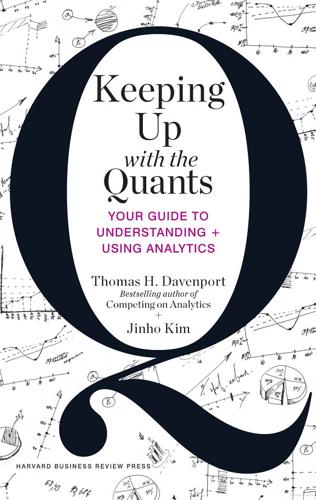
Keeping Up With the Quants: Your Guide to Understanding and Using Analytics
by
Thomas H. Davenport
and
Jinho Kim
Published 10 Jun 2013
In general, faked or fraudulent data appear to have far fewer numbers starting with 1, and many more starting with 6, than do true data. In 1972, the Berkeley economist Hal Varian showed that the law could be used to detect possible fraud in lists of socioeconomic data submitted in support of public planning decisions. Forensic accountant Mark Nigrini gained recognition by applying a system he devised based on Benford’s Law to some fraud cases in Brooklyn. Today many income tax agencies are using detection software based on Benford’s Law, as are a score of large companies and accounting firms. In America, evidence based on Benford’s law is legally admissible in criminal cases at the federal, state, and local levels.

Life Will Be the Death of Me: ...And You Too!
by
Chelsea Handler
Published 8 Apr 2019
The woman who ran the rescue explained that they would need at least two days to give the dogs all their shots and grooming, and that someone from her organization would have to do a home inspection before they gave me the go-ahead. I respected that, but had no idea what it meant. I would have agreed to let her comb through my taxes with a forensic accountant, if it meant having a brother-sister combo platter named Bert and Bernice. I mean, seriously. Does it get any more real than that? I left Tanner in charge of answering the woman’s questions regarding the adoption, and drove back to Los Angeles, looking forward to the challenge of knowing I was ready for some real doggy parenting this time around.
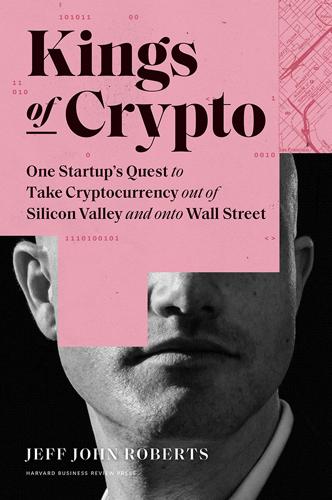
Kings of Crypto: One Startup's Quest to Take Cryptocurrency Out of Silicon Valley and Onto Wall Street
by
Jeff John Roberts
Published 15 Dec 2020
Alford has a strange habit—he always reads documents three times—but this idiosyncrasy paid off when, on one of his triple readings, he recognized a connection between a Gmail address and the Dread Pirate Roberts, the anonymous mastermind of the Silk Road. Alford’s discovery led the Justice Department to identify and convict Ross Ulbricht, aka the Dread Pirate. Alford’s colleague Utzke had foreseen the rise of digital money way back in the 1980s and chose a novel concentration of studies in college—economics, forensic accounting, and computer science—in anticipation of something like bitcoin arriving one day. At the IRS, as the crypto markets picked up steam in early 2016, he embarked on an investigation of crypto tax evasion. This entailed an electronic search of all IRS returns between 2013 and 2015 to determine how many included a Form 8949—used to declare capital gains.
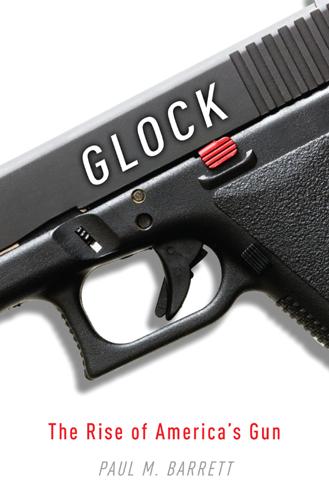
Glock: The Rise of America's Gun
by
Paul M. Barrett
Published 10 Jan 2012
But these service firms “had no economic substance and were motivated by tax reasons,” according to a confidential ninety-two-page analysis of the Glock companies conducted by Pricewaterhouse-Coopers. The Luxembourg court had appointed a provisional administrator to sort out who owned Unipatent, and that administrator hired the giant auditing firm to do the arduous forensic accounting. Pricewaterhouse found that the Glock service companies’ role appeared to be the shielding of company profits from potential taxation in Austria, Latin America, and Hong Kong. The Latin American and Asian operating units, in turn, appeared to be used to extract profits from the US subsidiary, Pricewaterhouse alleged.
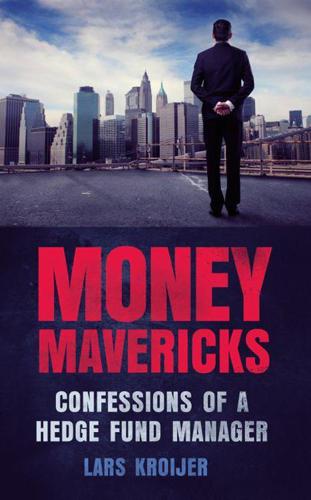
Money Mavericks: Confessions of a Hedge Fund Manager
by
Lars Kroijer
Published 26 Jul 2010
They want to know how you think you can beat the competition. And we all have an answer. You have to. You can’t justify charging investors to manage their money if you cannot explain why investing with you is any better than a monkey throwing darts. Answers you hear often from managers are things like ‘forensic accounting’, ‘primary research’, ‘a proven proprietary trading system’, ‘a better process’ and so on. It is no wonder that investors are sometimes unable to decipher the jargon and fall back on investing with companies that have the best performance history. ‘Nobody ever got fired for buying IBM,’ as they used to say.
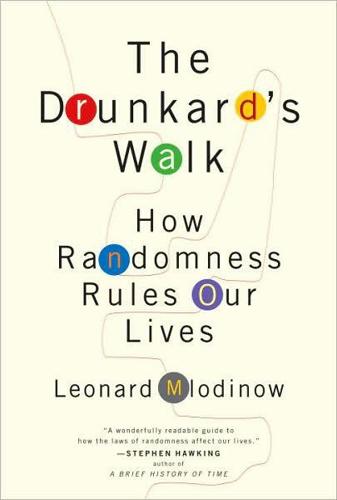
The Drunkard's Walk: How Randomness Rules Our Lives
by
Leonard Mlodinow
Published 12 May 2008
And since several homes, twenty personal watercraft, forty-seven cars (including five Hummers, four Ferraris, three Dodge Vipers, two DeTomaso Panteras, and a Lamborghini Diablo), two Rolex watches, a twenty-one-carat diamond bracelet, a $200,000 samurai sword, and a commercial-grade cotton candy machine would have been difficult to explain as necessary business expenditures, Lawrence and his pals tried to cover their tracks by moving investors’ money through a complex web of bank accounts and shell companies to give the appearance of a bustling and growing business. Unfortunately for them, a suspicious forensic accountant named Darrell Dorrell compiled a list of over 70,000 numbers representing their various checks and wire transfers and compared the distribution of digits with Benford’s law. The numbers failed the test.3 That, of course, was only the beginning of the investigation, but from there the saga unfolded predictably, ending the day before Thanksgiving 2003, when, flanked by his attorneys and clad in light blue prison garb, Kevin Lawrence was sentenced to twenty years without possibility of parole.
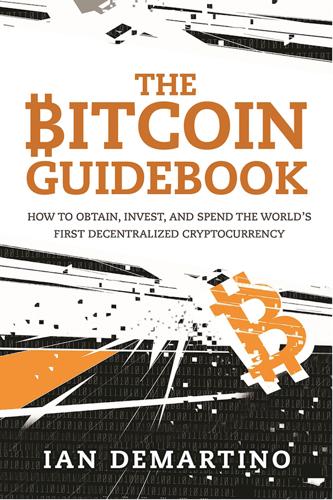
The Bitcoin Guidebook: How to Obtain, Invest, and Spend the World's First Decentralized Cryptocurrency
by
Ian Demartino
Published 2 Feb 2016
As Nathan Wosnack, the cofounder of Blockchain Factory (a B2B service that is primarily focused on extending the useful data found in the blockchain), has pointed out: I feel as though the statements about anonymity on an open and immutable public ledger that can be audited by anyone [like the blockchain] to be a completely ridiculous assertion and [a] modern myth. […] Using mixers helps, but I’m still not convinced even those can save one from sophisticated forensic accounting tools likely being used and in development by law enforcement to analyze targeted [individuals] or even big data and figure out roughly who the parties are, where, and what they’re buying or selling. It is impossible to predict the future with 100 percent accuracy. We don’t know what kind of tools will be combing through the blockchain in the future.

The Lonely City: Adventures in the Art of Being Alone
by
Olivia Laing
Published 1 Mar 2016
There are at present two documentaries about Harris’s strange and turbulent life: We Live in Public, which was directed by Harris’s long-term collaborator Ondi Timoner, and Harvesting Me, an episode of Errol Morris’s First Person series. There is also a book, Totally Wired by Andrew Smith, which charts the rise and fall of the dotcom bubble by way of a wonderfully forensic account of Harris’s exploits over the years. All of these works contain scenes in which Harris describes his childhood, in characteristically aphoristic (also confusing, paranoid and unfinished) sentences, as notably unpeopled and friendless, his emotional support provided more by television sets than human beings.
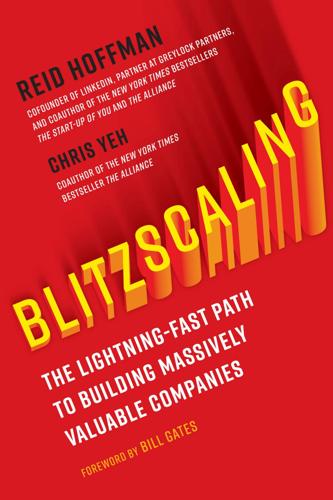
Blitzscaling: The Lightning-Fast Path to Building Massively Valuable Companies
by
Reid Hoffman
and
Chris Yeh
Published 14 Apr 2018
In the early days of PayPal, in addition to the problem of credit card fraud, we also faced the issue of illegal transactions. We obviously didn’t want people using PayPal for buying and selling drugs or funding criminals and terrorists, which would represent a systemic risk. On the other hand, we didn’t have in-house expertise in forensic accounting or police work. Because our transaction volume was still low, and because we judged the probability of illegal transactions occurring to be very low, we deferred working on the problem, but we also committed to building the necessary expertise and infrastructure to better manage the issue later on
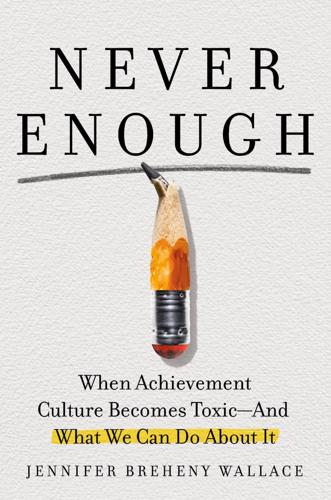
Never Enough: When Achievement Culture Becomes Toxic-And What We Can Do About It
by
Jennifer Breheny Wallace
Published 21 Aug 2023
When I asked students in my survey to define what it means to be successful in their community, their responses were incredibly consistent: “nice homes” and “high-paying careers.” Or as one mother in Palo Alto put it, “Parents say that they just want their kids to be happy, but what they really mean, and their kids know this, is that they want them to be happy like they are, with the prestigious job and the big house.” You don’t have to be a forensic accountant to figure out how much a parent’s lifestyle costs. A simple Internet search reveals a house’s estimated worth and tax history, the price of a fancy hotel stay in London, the sticker price of a new car, the salary ranges for any number of careers—it’s all a few clicks away. “No one wants to live at a lower standard of living than the one they grew up in,” said Lisa Damour, a child psychologist who lives in Shaker Heights, Ohio.
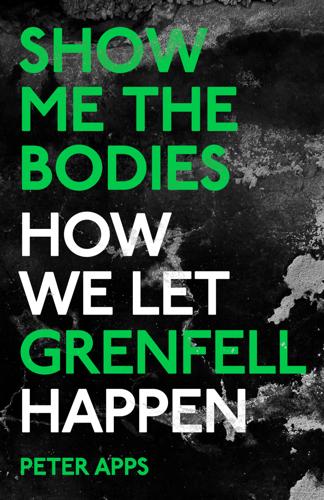
Show Me the Bodies: How We Let Grenfell Happen
by
Peter Apps
Published 10 Nov 2022
David Peace, author of the Red Riding Quartet ‘Working from painstaking daily reporting from the inquiry, alongside extensive interviews with the bereaved and survivors of the Grenfell atrocity, Apps has written a concise, devastatingly detailed and upsetting book … From architects to politicians, all decision makers should read Show Me the Bodies.’ Emma Dent Coad, former MP for Kensington ‘Peter Apps has written a searing indictment of what he rightly calls “the most serious crime committed on British soil this century” in this forensic account of the deregulation, cost-cutting and sheer negligence behind the Grenfell fire and its human cost. It’s essential reading if we are to avoid such needless tragedy in the future.’ John Boughton, author of Municipal Dreams ‘This book is a vital work of public service. Peter Apps has shown the care, humanity and attention to detail that was lethally lacking among those with the power and responsibility to keep the residents of Grenfell safe.
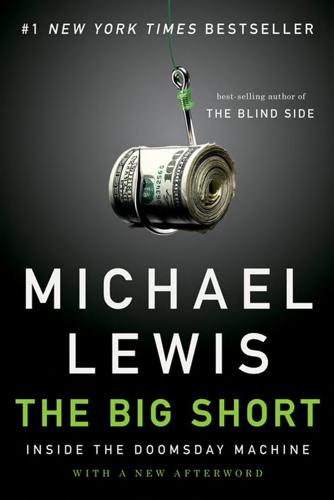
The Big Short: Inside the Doomsday Machine
by
Michael Lewis
Published 1 Nov 2009
Of course, the whole thing wasn't risk-free: If AIG went bust, the insurance was worthless, and Goldman could lose everything. Today Goldman Sachs is, to put it mildly, unhelpful when asked to explain exactly what it did, and this lack of transparency extends to its own shareholders. "If a team of forensic accountants went over Goldman's books, they'd be shocked at just how good Goldman is at hiding things," says one former AIG FP employee, who helped to unravel the mess, and who was intimate with his Goldman counterparts. * Zelman alienated her Wall Street employer with her pessimism, and finally quit and set up her own consulting firm.
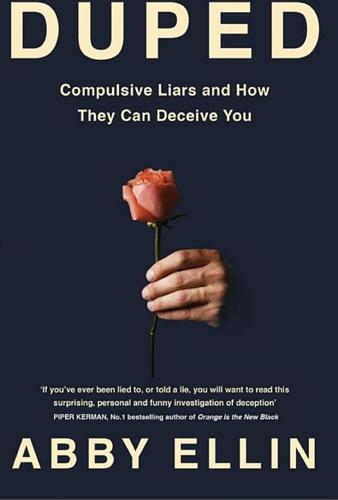
Duped: Double Lives, False Identities, and the Con Man I Almost Married
by
Abby Ellin
Published 15 Jan 2019
When their opportunities increased, so would their ability to commit crime, a topic she wrote about in her groundbreaking book Sisters in Crime: The Rise of the Female Criminal.35 One thing that’s clear is that the world is much more forgiving of male liars than female ones. Maybe it’s because we expect more from women—they’re mothers, caregivers. They’re not supposed to deceive. “Society is more accepting of men committing crimes and atoning for their sins than women,” said Kelly Richmond Pope, a forensic accountant in Chicago and the director and producer of All the Queen’s Horses, a documentary about Rita Crundwell. “I don’t think it’s expected for a woman to embezzle or engage in a Ponzi scheme or to have another family in another town. We accept, allow, and excuse it of men. I think it goes back to the historical role we allow men to play, like Leave It to Beaver.

A Bit of a Stretch: The Diaries of a Prisoner
by
Chris Atkins
Published 6 Feb 2020
Gary refuses to get down until I chase the rat out of the cell. Wandsworth is infested with vermin, thanks to the piles of rotting rubbish. I’m surprised there hasn’t been an outbreak of bubonic plague. 6 January I receive some paperwork about my upcoming proceeds-of-crime hearing. HMRC has hired a new forensic accountant to calculate my financial benefit. They accept that I wasn’t paid personally, but I am on the block for the money retained by the production company to fund Starsuckers. The accountant has actually estimated down what was alleged in court, and the financial benefit attributed to me is just over £100,000.
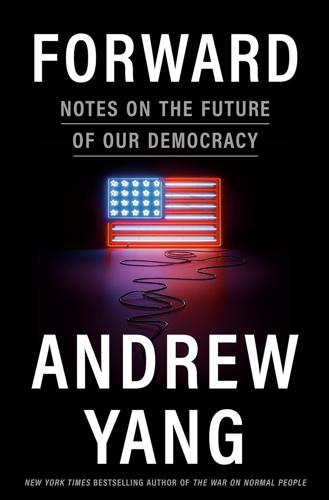
Forward: Notes on the Future of Our Democracy
by
Andrew Yang
Published 15 Nov 2021
If you can’t hire a new army of IRS auditors, you could allow private firms to finance or even assist with IRS audits and enforcement actions against some of the bad actors. Imagine if the IRS were to say that private investors get 25 percent of any settlement. That would be a $100 billion pot, one of the biggest opportunities in all of industry. You would have a new army of talented auditors and forensic accountants tracking down fraud for a piece of the action along with investors willing to bankroll the whole thing. A friend of mine in the legal industry said to me, “You already have lawsuit investors. Investors would throw money and people at this immediately; the financial upside would be enormous.”
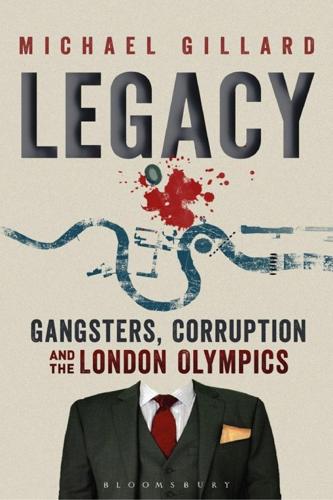
Legacy: Gangsters, Corruption and the London Olympics
by
Michael Gillard
Published 24 Jul 2019
For starters, he has no hard-boiled law enforcement background and is more likely to have a row with a sommelier than a punchy informant in a dive bar. The jowly investigator in his mid-fifties is part of the newer breed of corporate gumshoe, the accountants whose playgrounds are the boardroom battles when clients find themselves on the wrong end of a criminal or civil prosecution. Hill was a partner at PKF, a forensic accountancy firm, where he ran the business intelligence team carrying out due diligence inquiries for clients, a fancy name for all manner of investigative techniques, some that straddle the line of legality and plausible deniability. The unwritten agreement between private investigators and their corporate clients in this new world is the same as it ever was: don’t get caught, and if you do, you’re on your own.
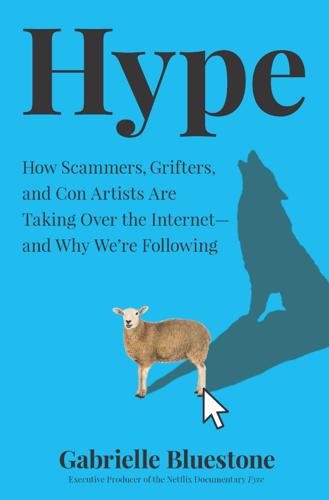
Hype: How Scammers, Grifters, and Con Artists Are Taking Over the Internet―and Why We're Following
by
Gabrielle Bluestone
Published 5 Apr 2021
“So you go to the casino and you lose money...you still made 2 percent of the management fee for ten years on multiple vintages of the fund. “And if you make money, then you take 30 percent of the profits and start writing think pieces,” he concluded. It all sort of seems like a Schrödinger’s catfish situation to me, where the money coming out of a tech company is just as likely to be real or fake until you do an actual forensic accounting, at which point it’ll probably be too late to matter, anyway. So I reached out to University of Texas business professor Robert Prentice to ask where all objective facts went in business. Reached by phone in his campus office, where he heads in to work every day (even in a pandemic), Prentice said the charade goes far beyond the tech industry.
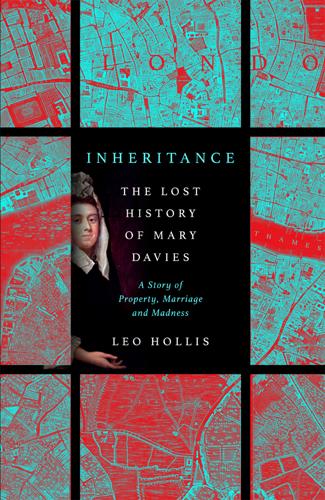
Inheritance
by
Leo Hollis
Dan Snow, author of Death or Victory: The Battle for Quebec and the Birth of Empire ‘Leo Hollis combines meticulous research with his trademark style once again in this perceptive and humane book on one of modern London’s most significant origin stories.’ Lucy Inglis, author of Georgian London: Into the Streets ‘Identifying an authentic seventeenth-century mystery, Leo Hollis uses the form of the classic detective story to deliver a fast-moving and forensic account of the birth and development of the London property market. Here is a valuable addition to the literature of the city in another period of cancerous growth.’ Iain Sinclair, author of The Last London ‘Wonderfully rich and informative… To present deep scholarship so accessibly and with such fluency is a rare achievement.’
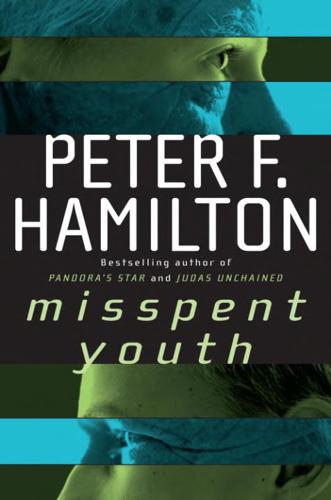
Misspent Youth
by
Peter F. Hamilton
Published 1 Jan 2002
Like he’d make toast and jam, then deep fry it for lunch.” “Deep fry it?” Colin yelped. “Yeah. Dead on.” “With jam?” “Yeah. He thinks it’s like supernormal. I reckon he’s got an old desktop synthesizer stashed in the house somewhere.” “The guy’s not had a job in years,” Tim said. “Annabelle told me. He used to be some kind of forensic accountant, which is like the top of the profession. He was on the team investigating one of the Italian sea solar plants they built outside Venice lagoon, and it all got political with the Mafia involved and everything. Brussels crashed the report.” “Unserious?” “Dead on. He just spends the whole time in front of the screen now.”
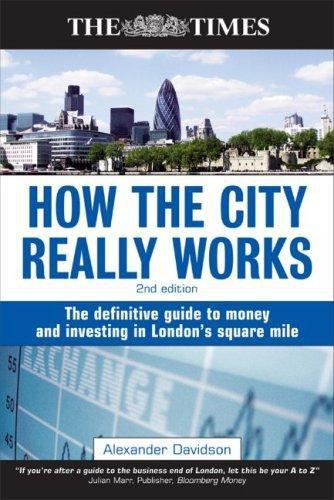
How the City Really Works: The Definitive Guide to Money and Investing in London's Square Mile
by
Alexander Davidson
Published 1 Apr 2008
It has 50–60 investigators, 30–40 lawyers and paralegal staff, and some tax experts and accountants, all part of an integrated team. A third of its capacity operates from a Belfast office, where costs are 20 per cent lower than in the mainland UK, and the rest from London. Staff are often seconded from other agencies, including the entire tax and forensic accountancy teams, and some investigators, according to McQuillan. Under the Serious Crime Bill, introduced in January 2007, the ARA’s investigative functions will merge with the SOCA (see above), and its training and accreditation functions into the National Policing Improvement Agency. This is part of a government strategy to distribute the ARA’s powers to other agencies and prosecutors.
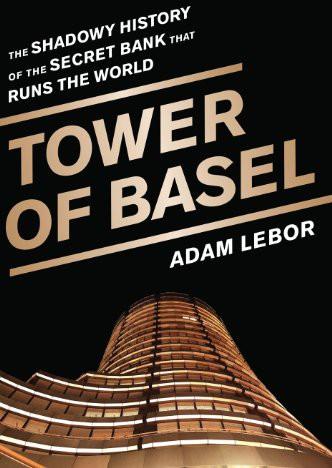
Tower of Basel: The Shadowy History of the Secret Bank That Runs the World
by
Adam Lebor
Published 28 May 2013
Chemnyco is an excellent example of the uses to which a country with a war economy may put an ordinary commercial enterprise.”18 Donald MacLaren, a BSC operative based in New York, had been working for months on an operation against GAF. MacLaren’s plan combined dirty tricks with very public exposure of the firm’s links to Nazi Germany. MacLaren, an ebullient Scot and bon viveur, was a forensic accountant by training and an expert in economic warfare. He had untangled the web of connections linking Standard Oil and Sterling Products, an American pharmaceuticals firm, with GAF and IG Farben. GAF, he wrote, was a “supply depot” for the Latin American subsidiaries of IG Farben and sought to “camouflage its German ownership.”19 MacLaren knew that there were two factions in GAF’s board of directors.
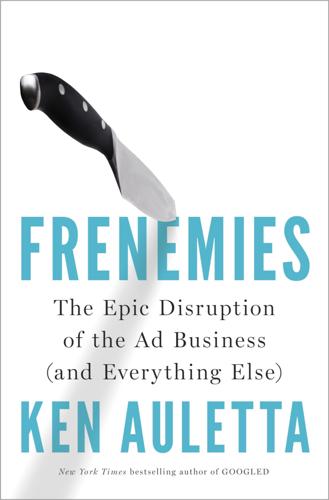
Frenemies: The Epic Disruption of the Ad Business
by
Ken Auletta
Published 4 Jun 2018
Technology and digital is at the core of R/GA’s DNA. “It’s not enough for Martin Sorrell to say he is willing to eat his own children or to acquire companies,” Greenberg says. “He’s not a disrupter, an innovator.” On another visit, Greenberg would say of Sorrell, “At the end of the day, Martin is a forensic accountant. He’s truly brilliant. But he has too much control for innovation. I would never work for Martin. He’s too controlling.” He does work for Michael Roth, CEO of IPG, his parent company, who he praises for granting R/GA operating freedom. Roth says of Greenberg, “Bob is a visionary. . . . Everyone thinks he’s this technology genius.
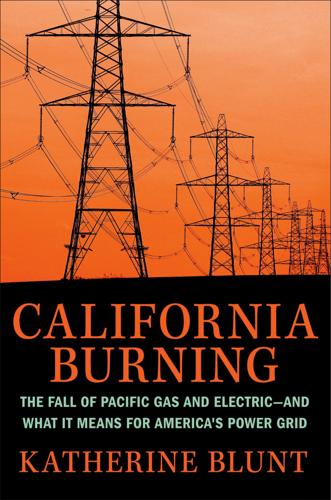
California Burning: The Fall of Pacific Gas and Electric--And What It Means for America's Power Grid
by
Katherine Blunt
Published 29 Aug 2022
They never revealed why, but it likely had to do with the sheer challenge of proving PG&E’s financial gain as a result of the crime. Haggarty was incensed by the decision. If they couldn’t prosecute individuals, what other choice did they have than to seek the largest possible fine from the company? Earlier in the case, the team had brought in forensic accountants to help arrive at a number. But the prosecutors had their reasons, and stuck to them. At that point, they were tired. The trial had been all-consuming. Instead of an alternative fine, PG&E would pay no more than the statutory maximum for each of the six charges, for a total of $3 million, a figure that amounted to little more than a rounding error on the company’s balance sheet.
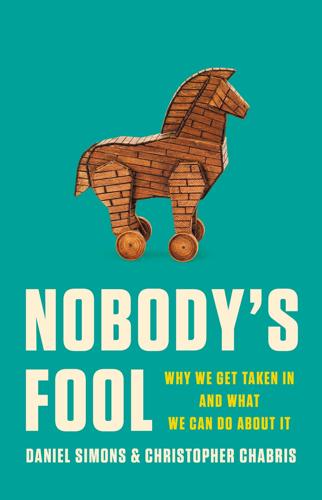
Nobody's Fool: Why We Get Taken in and What We Can Do About It
by
Daniel Simons
and
Christopher Chabris
Published 10 Jul 2023
But ensuring that the accounts followed by those bots also had follower counts that adhered to Benford’s law would be especially challenging. 36. Radiolab discussion of misapplications of Benford’s law to the 2020 US presidential election: Latif Nasser, “Breaking Benford,” November 13, 2020 [https://radiolab.org/episodes/breaking-benford]. 37. M. J. Nigrini, Benford’s Law: Applications for Forensic Accounting, Auditing, and Fraud Detection (Hoboken, NJ: Wiley, 2012). 38. Quotation from J. Levitt, Contemplating Comedy (Conrad Press, 2020). Avoiding being deceived by one’s own expectations is critical to the art of forecasting future events. See P. E. Tetlock and D. Gardner, Superforecasting: The Art and Science of Prediction (New York: Crown, 2015).
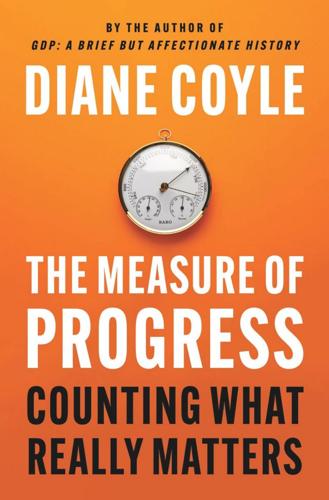
The Measure of Progress: Counting What Really Matters
by
Diane Coyle
Published 15 Apr 2025
Just as has been the case with global production networks, the phenomenon w ill have implications for the macroeconomy (for example, for how the labour market operates and hence wage inflation pressures, or for tax collection) and for questions of competition and resilience (Baldwin 2022). One uncertainty about his prediction of continuing rapid growth in this trade is the impact of AI on some of the occupations involved (“bookkeepers, forensic accountants, CV screeners, administrative assistants, online client help staff, graphic designers, copyeditors, personal assistants, corporate travel agents, software e ngineers, l awyers who can check contracts, financial analysts who can write reports” [Baldwin 2022, p16]), as companies might opt for 100 per cent automation rather than hybrid h uman plus ICTs for some of t hese.
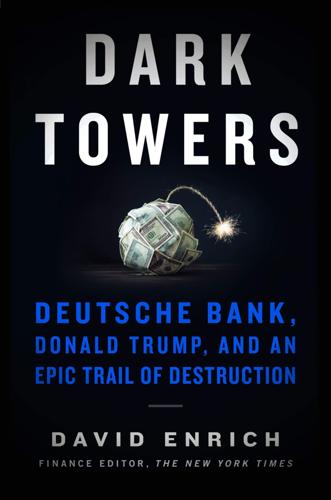
Dark Towers: Deutsche Bank, Donald Trump, and an Epic Trail of Destruction
by
David Enrich
Published 18 Feb 2020
Val initially balked—he was beginning to worry that he was diluting the value of his possessions by not guarding them more closely—but eventually agreed to share the materials. A BakerHostetler aide came in and copied the files onto a thumb drive. Back in the Manhattan DA’s office, Moscow had gotten to know a forensic accountant named Sean O’Malley. The two men had stayed in touch over the years. Now O’Malley was leading a team of anti-money-laundering agents at the New York Fed who were investigating. Moscow told O’Malley that he had something interesting to share, and then delivered him a USB stick containing Val’s items.
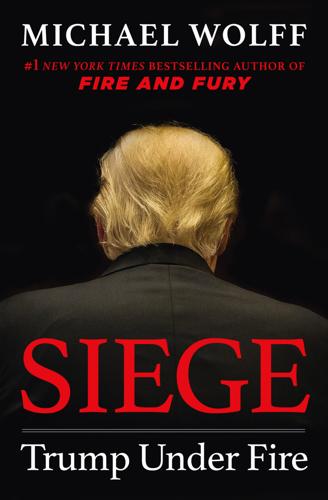
Siege: Trump Under Fire
by
Michael Wolff
Published 3 Jun 2019
This relationship lasted for six or seven years, until Manafort, in Ocean’s Eleven fashion, seemed to have conned Deripaska into an investment ruse that enabled Manafort to abscond with at least $19 million, incurring in Mr. D.’s mind something of a blood debt. Deripaska and his people had been relentlessly pursuing Manafort and Mr. D.’s $19 million through the courts, in the Cayman Islands and in New York State, and through a forensic accounting of the long paper trail of Manafort’s treacheries—an accounting that Mr. D.’s people may or may not have shared with U.S. officials. (Mr. D., denied a visa by the United States because of his suspected criminal activities, had been trying to curry favor with U.S. law enforcement.) Manafort, meanwhile, was trying to somehow make good on his debt.
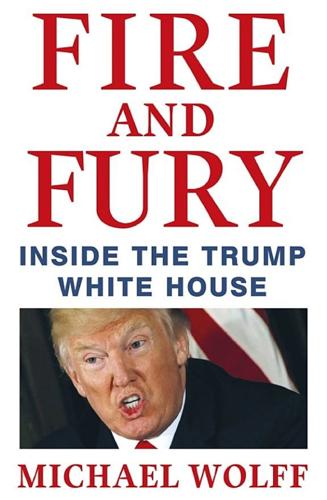
Fire and Fury: Inside the Trump White House
by
Michael Wolff
Published 5 Jan 2018
The worry among staffers—all of them concerned that Trump’s rambling and his alarming repetitions (the same sentences delivered with the same expressions minutes apart) had significantly increased, and that his ability to stay focused, never great, had notably declined—was that he was likely to suffer by such a comparison. Instead, the interview with Trump was offered to Sean Hannity—with a preview of the questions. Bannon was also taking the Breitbart opposition research group—the same forensic accountant types who had put together the damning Clinton Cash revelations—and focusing it on what he characterized as the “political elites.” This was a catchall list of enemies that included as many Republicans as Democrats. Most of all, Bannon was focused on fielding candidates for 2018. While the president had repeatedly threatened to support primary challenges against his enemies, in the end, with his aggressive head start, it was Bannon who would be leading these challenges.
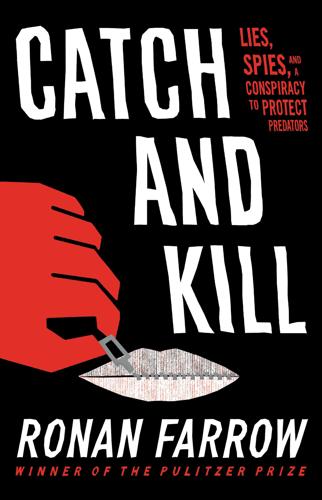
Catch and Kill: Lies, Spies, and a Conspiracy to Protect Predators
by
Ronan Farrow
Published 14 Oct 2019
For you or me, the term “private detective” might conjure images of hard-drinking ex-cops working out of rundown offices. But for moneyed corporations and individuals, the profession has long offered services that look very different. Back in the ’70s, a former prosecutor named Jules Kroll founded his eponymous firm, catering to law firms and banks, and staffed by former cops, FBI agents, and forensic accountants. The formula, and a generation of copycats, flourished. In the 2000s, Israel became a hotbed for such firms. The country’s mandatory military service, and the legendary secrecy and accomplishment of its intelligence agency, Mossad, created a ready pipeline of trained operatives. The Israeli firms began emphasizing less conventional forms of corporate espionage, including “pretexting”: using operatives with false identities.
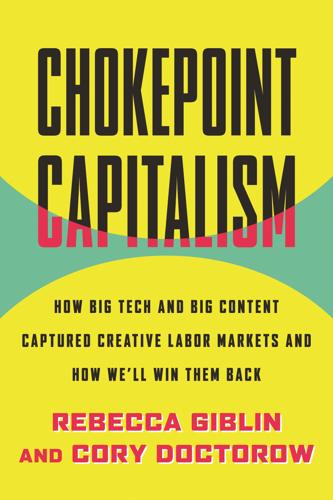
Chokepoint Capitalism
by
Rebecca Giblin
and
Cory Doctorow
Published 26 Sep 2022
One member, Colleen Cross, was initially reluctant to get involved: “You know when you’re in an abusive relationship and you don’t want to acknowledge what’s happening? That’s what it’s like to work with Audible.” But when she saw May trying to move mountains all by herself, she jumped in to help. And she was uniquely placed to do so: a former forensic accountant and CFO turned writer of fraud thrillers, she found herself in the midst of just the kind of tangle she’s delivered to hundreds of thousands of readers. Since then, she has spent hours poring over Amazon’s financials and writer pay statements trying to figure out how much Audible’s policies might have cost independent writers.
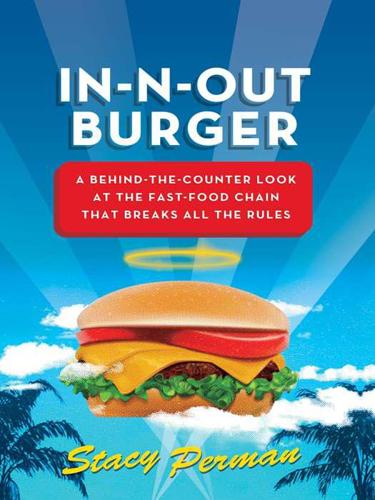
In-N-Out Burger
by
Stacy Perman
Published 11 May 2009
Kahles called In-N-Out’s headquarters only to be rebuffed. “I asked for her number and they said no. Then I left her a message with them and told her to call me. They never gave her any of my messages.” On November 5, 2005, In-N-Out Burger retained Grant Thornton, a large tax firm, to perform a forensic accounting analysis on Boyd; specifically, the firm was tasked with looking into allegations of inappropriate transactions. The firm was given access to Boyd’s department offices and files. They interviewed Boyd’s staffers and a number of the contractors and subcontractors, including Michael Madrid, owner of Michael Anthony Companies.
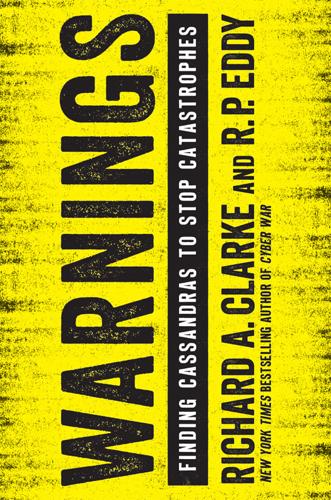
Warnings
by
Richard A. Clarke
Published 10 Apr 2017
And I also have to simplify them for multiple audiences. I know I’m going to have attorneys in the U.S. Attorney’s office or the SEC that are not going to have financial backgrounds, so I have to do things in picture book form and give them analogies,” he explains. “But I also have to appeal to the forensic accountants who work largely with the opposite part of the brain, and give them something to sink their teeth into. So I have to be able to present the case across multiple dimensions to each audience that’s going to be working on that case. That was something that I did not know how to do in the Madoff case, and so I have to blame myself for that.”
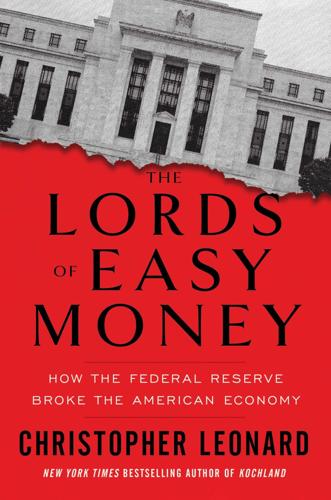
The Lords of Easy Money: How the Federal Reserve Broke the American Economy
by
Christopher Leonard
Published 11 Jan 2022
Fully two thirds of the production estimates made by leading fracking companies in Texas and North Dakota between 2014 and 2017 were inflated, promising more oil than was ultimately delivered, according to an in-depth investigation by The Wall Street Journal. The estimates were, on average, about 10 percent too high. It didn’t take a forensic accountant to realize this. The frackers lost money in a large and very public way. Between mid-2012 and mid-2017, the biggest fracking exploration and production companies had a collective negative cash flow of $9 billion every quarter. And still the money flowed to them in the form of corporate bonds and leveraged loans.
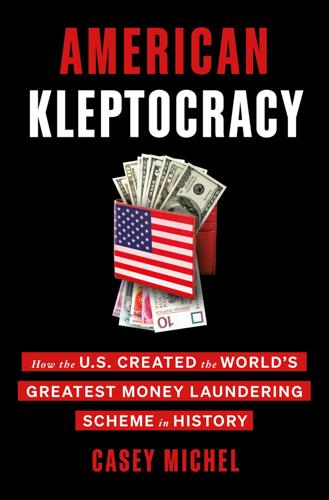
American Kleptocracy: How the U.S. Created the World's Greatest Money Laundering Scheme in History
by
Casey Michel
Published 23 Nov 2021
“No one imagined it was like this,” Gontareva told me. “It was all a Ponzi scheme. There were no assets at all.… That’s why I called this the biggest fraud of the twenty-first century.”12 * * * AFTER NATIONALIZING PRIVATBANK, authorities in Kyiv had one question: Where had all the money gone? As investigators and forensic accountants later discovered, the PrivatBank Ponzi scheme stood—as with many Ponzi schemes—both confusingly complex and perfectly straightforward. The key to PrivatBank’s Ponzi success was what some dubbed a “Shadow Bank”13 or a “Bank within the Bank.”14 Here’s how the scheme worked, according to both Ukrainian and American authorities.
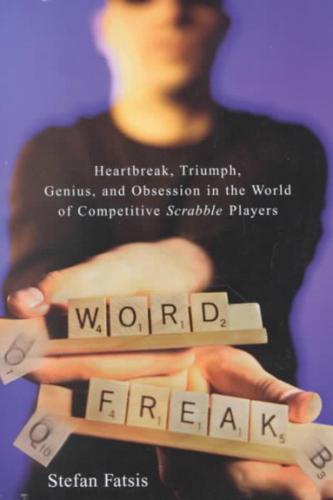
Word Freak: Heartbreak, Triumph, Genius, and Obsession in the World of Competitive ScrabblePlayers
by
Stefan Fatsis
Published 27 Jul 2001
“I think the U.K. players are just as intense as the U.S. players, but they just don’t show it. I’d say we have more regular guys than you do.” He says that “Sherman-Edley types” — eccentrics unafraid, even eager, to flaunt their eccentricities — would be unusual in the U.K. Or, as the English player David Webb, a forensic accountant, sums up the Americans: “I can’t imagine being any of them.” “All the Yanks seem to live at the center of their own universe with only a dim recognition of, and no interest in, life outside it,” Webb tells me. “Conversational gambits are treated as genuine inquiries into their universe, but there is no recognition of any need for reciprocity.
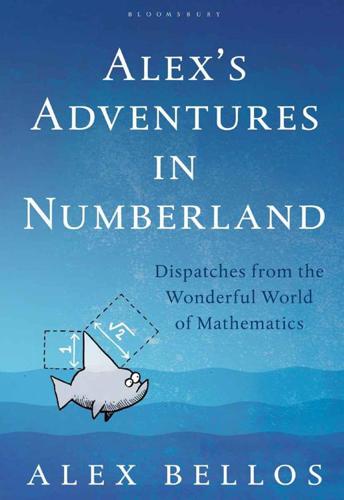
Alex's Adventures in Numberland
by
Alex Bellos
Published 3 Apr 2011
If we know the mean and the deviation, then we know the shape of the curve. It is incredibly convenient that the normal curve can be described using only two parameters. Perhaps, though, it is too convenient. Often statisticians are overly eager to find the bell curve in their data. Bill Robinson, an economist who heads KPMG’s forensic-accounting division, admits this is the case. ‘We love to work with normal distributions because [the normal distribution] has mathematical properties that have been very well explored. Once we know it’s a normal distribution, we can start to make all sorts of interesting statements.’ Robinson’s job, in basic terms, is to deduce, by looking for patterns in huge data sets, whether someone has been cooking the books.
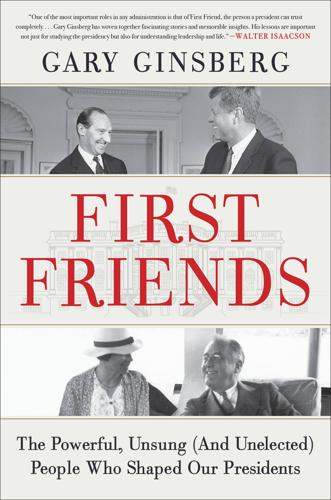
First Friends: The Powerful, Unsung (And Unelected) People Who Shaped Our Presidents
by
Gary Ginsberg
Published 14 Sep 2021
This was their attempt to prove, Lenzner later wrote, that the money had not been used. There were a few problems with this account from Rebozo and his lawyer, however. Most troubling, Kalmbach had already testified that Rebozo told him he’d disbursed the funds. If that was true, what was the source of this $100,000 that Ervin was gaping at? A forensic accountant stepped in to investigate. Every bill released by the Federal Reserve has an index number that is tied to its date of release. The accountant soon discovered, according to Lenzner, that more than thirty of the bills had been issued after Danner had given the money to Rebozo, meaning that the original bills had gone elsewhere.
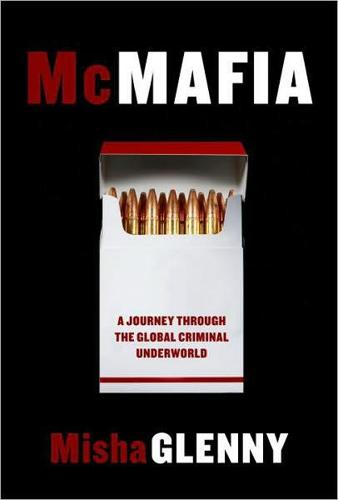
McMafia: A Journey Through the Global Criminal Underworld
by
Misha Glenny
Published 7 Apr 2008
“The problem is that nobody was looking for it who knew how to look for the money,” explained Bill Richey, a former Florida State DA who was asked by the Simonsens and Cochranes to search for the money across the globe. And so Richey made a smart move—he called a buddy who used to work for the Internal Revenue Service as a criminal investigator. “You know, the IRS are tax people, the American gestapo!” he said. “My guy is a very nice man, but he’s a very efficient and effective forensic accountant investigator.” Tracing the money to Switzerland, England, and the United States, Richey assembled the A-team of asset recovery lawyers in London, Kentucky, Los Angeles, New York, Geneva, Hong Kong, Singapore, and Lagos. Slowly but surely, the A-team started to claw back the assets located outside Nigeria.
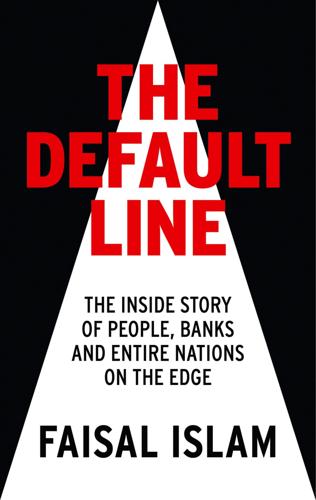
The Default Line: The Inside Story of People, Banks and Entire Nations on the Edge
by
Faisal Islam
Published 28 Aug 2013
Bankia had sparked a humiliating national bailout and the largest loss, at the time of writing, in Spanish corporate history. And what happened to the executives responsible for creating this beast that was too big to fail? While others lost their homes, they kept their high salaries. At FROB, forensic accountants were searching through the balance sheets of all the cajas for evidence of wrongdoing. A week later they sent five cases to court. Most of these related to massive managerial pay packets, sometimes not even revealed to the board of the bank in question. What a way to go. Cajas had been founded by churches on the Benthamite principle of achieving the greatest happiness for the greatest number, and set out to help farmers and ordinary Spaniards in the tough years following the Peninsular War with Napoleonic France.
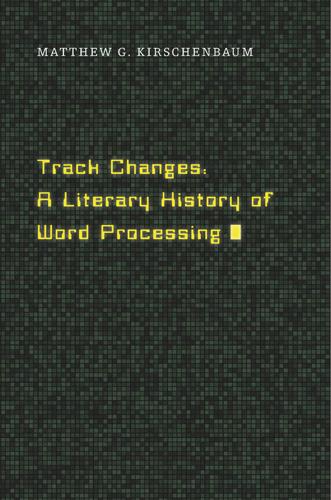
Track Changes
by
Matthew G. Kirschenbaum
Published 1 May 2016
For one instance, see “I Look to Theory Only when I Realize That Somebody Has Dedicated Their Entire Life to a Question I Have Only Fleetingly Considered (a Work in Progress),” at Kenneth Goldsmith (author page), University of Buffalo, Electronic Poetry Center, accessed July 23, 2015, http://wings.buffalo.edu/epc/authors/goldsmith/theory.html. 11. Hammond, Writer and the Word Processor, 9–10. 12. See Lawrence Rainey, Revisiting The Waste Land (New Haven, CT: Yale University Press, 2005), for both the definitive forensic account of the text’s typewritten composition and a deft reading of the typewriter’s figure. 13. Hannah Sullivan, The Work of Revision (Cambridge, MA: Harvard University Press, 2013), 39–41. 14. For two starting points into this history, see Barrie Tulliett, Typewriter Art: A Modern Anthology (London: Laurence King, 2014); and Jerome J.
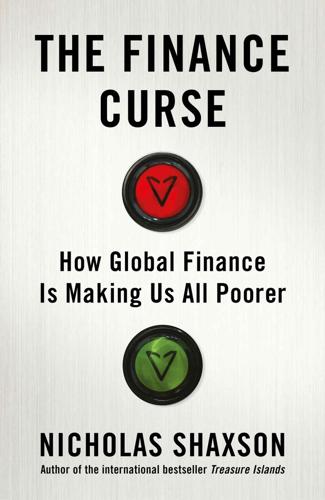
The Finance Curse: How Global Finance Is Making Us All Poorer
by
Nicholas Shaxson
Published 10 Oct 2018
If you mug someone in the street and you are caught, the chances are that you will go to prison. In recent years mugging someone out of their savings or their pension would probably earn you a yacht.’44 And so, it seems, would mugging a whole country – and indeed half the world. 8 Wealth and its Armour On 17 September 2007 Richard Murphy, a British commentator and forensic accountant, published a short blog remarking on some odd items in the accounts of Northern Rock, the British mortgage bank. Long queues had formed outside the bank’s branches after it had admitted a few days earlier that it had asked the Bank of England for emergency funding. This was the first proper run on a bank in Britain since 1866, and one of the first big shocks of the global financial crisis.
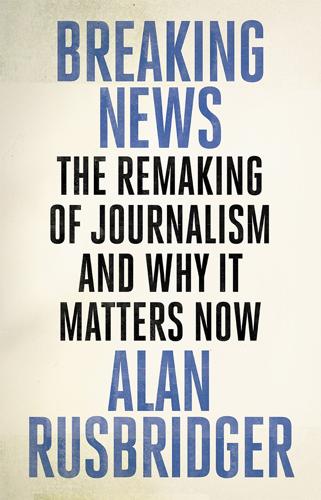
Breaking News: The Remaking of Journalism and Why It Matters Now
by
Alan Rusbridger
Published 14 Oct 2018
One former banker – who (in common with virtually everyone involved in this story) spoke on condition of anonymity – said it had taken him ‘five man months’ of investigation before he felt he had begun to understand the structures and finances of the Barclays’ empire. During the course of his enquiries he worked with another expert in forensic accountancy, who commented: ‘You know these guys have spent a lot of time and a lot of effort making sure that this is not easy.’ The difficulty arises from the movements in ownership and value as companies within Barclay ownership are variously ‘gifted’ to parent or grandparent companies and moved onshore or offshore.
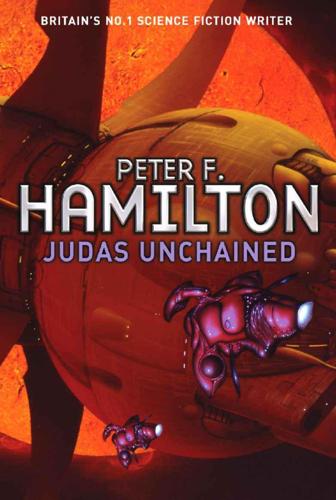
Judas Unchained
by
Peter F. Hamilton
Published 1 Jan 2006
‘I know that company,’ Gore said. ‘Legal firm here in town.’ ‘That is correct. Three of their employees have disappeared, in a similar fashion to Isabella. They set up the Cox Educational charity, which had its account in the Denman Manhattan bank. It would take Senate Security a while to organize a proper forensic accounting review of their records. And I’m sure you’re better able to perform the same function.’ ‘I’ll rip that goddamn company apart for you,’ Gore said. ‘If they’ve spent a single dime buying the Starflyer a drink I’ll find it.’ * The good ship Defender was three weeks into her deep space scouting mission, and her captain was as bored as the rest of his crew.
…
The network funding will have been switched to another distribution centre. However, Gore is going to inform the Financial Regulation Directorate, apparently he has a lot of contacts there. The Directorate will subject both Bromley, Waterford, and Granku, and the Denman Manhattan bank to a forensic accounting evaluation. It’ll be considerably more thorough than anything Senate Security can run. There’s a chance that they might identify both the source of all this dark money, and some of the elusive individuals it was channelled to. It will be difficult, whoever set this up knew what they were doing, and of course one time accounts remain the bane of law enforcement.’
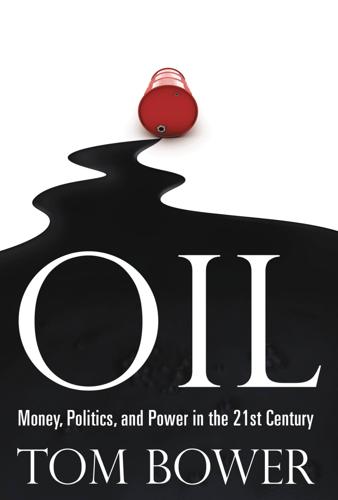
Oil: Money, Politics, and Power in the 21st Century
by
Tom Bower
Published 1 Jan 2009
Compiling “Rockford’s” conclusions about the overbooking of the reserves ruined Watts’s Christmas holiday. Ostensibly celebrating with the Sultan of Oman, he commuted back to Holland to implement Cravath’s advice that Shell needed to debook 2.3 billion barrels of reserves in accordance with the SEC’s requirement of “absolute certainty.” Uncurious about Cravath’s lack of forensic accounting, and oblivious to the doubts about himself among his fellow directors, Watts obeyed his lawyers and auditors to hastily complete a self-destructive operation. Disturbingly, the Wall Street Journal had hinted at Shell’s predicament. The leaks of the critical reports by Anton Bylondrecht describing the unsatisfactory reserves in Oman and Nigeria were clearly intended to destroy Watts and other managers.
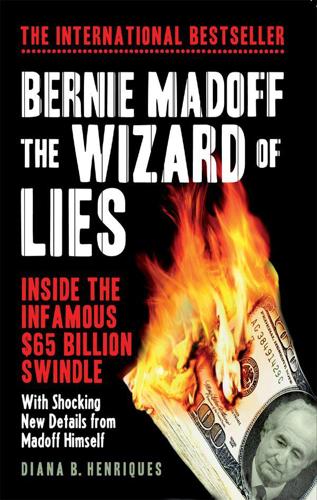
Bernie Madoff, the Wizard of Lies: Inside the Infamous $65 Billion Swindle
by
Diana B. Henriques
Published 1 Aug 2011
They included little ones against Madoff cousins and in-laws, midsize ones against elite hedge funds and former Madoff employees, and giant ones against Madoff’s earliest backers and some of the world’s biggest financial institutions. Nearly four dozen lawyers in Baker & Hostetler’s offices in Rockefeller Center were working almost around the clock. The lawsuits against smaller investors had been farmed out to dozens of lawyers scattered among the firm’s offices in Orlando, Houston, Denver, and Los Angeles. Forensic accountants and private investigators were working alongside the legal teams—as were paralegals, courthouse computer specialists, and multitasking secretaries. In addition, a small battalion of foreign lawyers had been hired to monitor and respond to more than 275 lawsuits in courts spread from Luxembourg to the Cayman Islands.
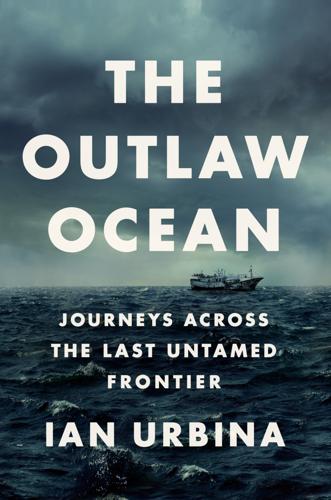
The Outlaw Ocean: Journeys Across the Last Untamed Frontier
by
Ian Urbina
Published 19 Aug 2019
For larger cruise ships, the cost of properly disposing waste onshore can be more than $150,000 per year. Some companies offer their engineers personal bonuses if they stay under budget—creating an incentive to skirt the law with magic pipes and massage the ship’s logs to cover it up. Akin to forensic accountants, magic-pipe investigators employed by the U.S. Coast Guard or maritime insurers comb these records, searching for odd inconsistencies and unlikely consistencies. If the oil record shows a discharge at one latitude and longitude, but the captain’s log for the same time says the ship was two hundred miles away from that location, investigators start asking tough questions.
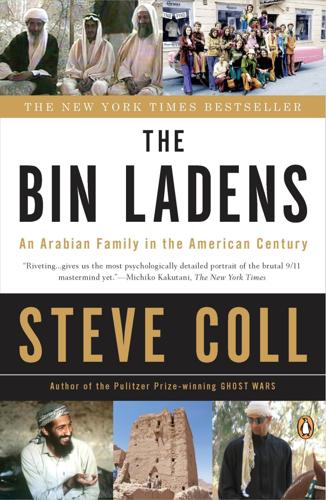
The Bin Ladens: An Arabian Family in the American Century
by
Steve Coll
Published 29 Mar 2009
It seems most likely that Ibrahim actually inherited cash from Mohamed’s estate, in the form of dividends, which he then shifted into stocks at Yeslam’s direction; his testimony on this point is not precise, but overall, it suggests the scale and fluidity of the inheritance. The most reliable portrait of the family dividend system comes from an American certified public accountant, Linda Pergament Swift, a specialist in forensic accounting, who examined the Bin Laden family’s finances during the early 1990s as part of an American divorce proceeding involving Ibrahim. In 1989, Swift reported to an American court, Ibrahim received two dividend payments from the Mohamed Bin Laden Organization totaling just over $325,000. This appears to be roughly the amount allotted to all male shareholders that year, including Osama.
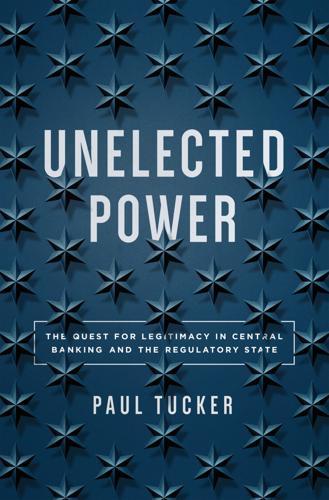
Unelected Power: The Quest for Legitimacy in Central Banking and the Regulatory State
by
Paul Tucker
Published 21 Apr 2018
His four classes, for each of the matrix’s cells, were termed production agencies, procedural agencies, craft agencies, and coping agencies. 10 This is a particular application of the definition of accountability in Bovens, “Analysing and Assessing Accountability.” It differs from that in Scott, “Accountability.” As I use it, “political accountability” can combine what Jeremy Waldron, in “Accountability,” has called “forensic accountability” (but without sanctions) and “agent accountability”; the former because, under DP1, the independent agency is assessed against a monitorable standard and the latter because the accountability is to the legislature that created the IA regime and that sustains its existence. In holding an agent to a monitorable standard, principals are in a position to assess the continued value of the standard that they set. 11 This implicitly assumes that IA regimes are not constitutionally entrenched or, roughly equivalent, that IAs are not a fourth branch of government.
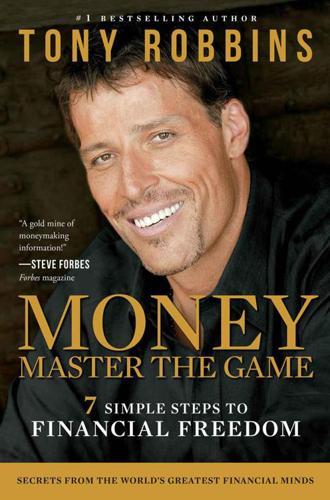
MONEY Master the Game: 7 Simple Steps to Financial Freedom
by
Tony Robbins
Published 18 Nov 2014
www.MarcumLLP.com HW FISHER & COMPANY HW Fisher & Company, Tony Robbins’s UK partner, is a commercially astute London-based organization with a personal, partner-led service aimed at entrepreneurial small and medium enterprises (SMEs), large corporates, and high-net-worth individuals. Founded in 1933, the practice is composed of 29 partners and approximately 260 staff, supplying a range of services spanning audit, corporate taxation, private client services, VAT, business recovery, and forensic accounting. www.hwfisher.co.uk HALL CHADWICK Hall Chadwick is Tony Robbins’s Australian partner and the fifth largest accounting group in Australia, servicing clients in every major capital city. Since 1886, Hall Chadwick has provided leading-edge solutions, and has an enviable reputation for its customer service.

The Temporal Void
by
Peter F. Hamilton
Published 1 Jan 2008
For the second time in a day Troblum didn’t need a program to interpret a human emotion. He nodded back, and fired the ship-to-ship neutron laser. For Paula it really hadn’t been difficult to discover who was Troblum’s ally on Sholapur. Troblum’s clandestine money transfers had been subject to forensic accounting by an office at the Commonwealth Senate Treasury ever since Justine reported on his strangely empty hangar at Daroca spaceport. The Treasury office had quickly determined that Stubsy Florac’s accounts had been the beneficiary of a great deal of money over the years, and ANA Security had accumulated a large file on the dealer’s activities.
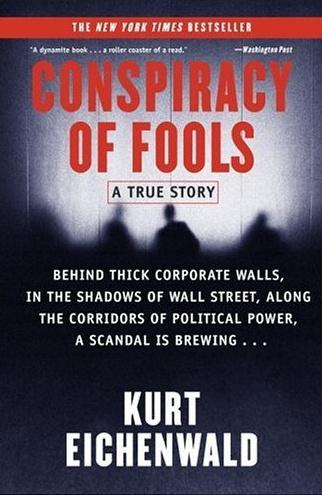
Conspiracy of Fools: A True Story
by
Kurt Eichenwald
Published 14 Mar 2005
He summarized the events of the past few weeks, describing the challenges Enron faced. “It is critical that Enron both establish credibility with the SEC and create confidence in the marketplace,” he said. The way to accomplish that, McLucas said, was to form a special committee of independent directors. That group, he said, should engage lawyers—who in turn would hire forensic accountants—to review the related-party deals. Lay picked up the theme. “If a special committee will help instill confidence, I would urge we proceed down that path,” he said. The directors warmed to the idea, then took things a step further, discussing whether to add a new director to the board, someone uninvolved in the decisions of the past who could lead the special committee in its investigation.
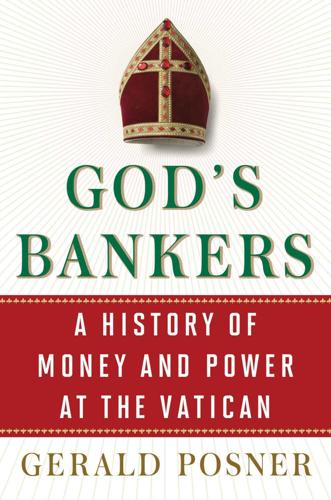
God's Bankers: A History of Money and Power at the Vatican
by
Gerald Posner
Published 3 Feb 2015
In March, the IOR responded to the joint commission’s many requests for records and financial ledgers by releasing eleven thin files of internal documents that addressed in the vaguest terms its relationship to the ghost companies in the letters of patronage. It was the first time the Vatican Bank ever produced private files for the investigators of another sovereign. And that was the result of a hard-fought compromise to an Italian demand that forensic accountants be allowed direct access to the IOR archives.21 The Vatican’s limited cooperation did not prove helpful to the joint commission, whose work was already hobbled by resistance from some major banks entangled with the Ambrosiano, including the Gottardo, Cisalpine, and Kredietbank. The commission was also stymied in accessing 1,500 pages of Calvi’s working papers as a Bahamian court had frozen a safe deposit box in Nassau’s Roywest Bank.